Discover Superhero Ethics
Superhero Ethics

326 Episodes
Reverse
Drew Maxey, (drewxdeficit on Twitter and TikTok) joins Riki and Matthew to discuss the political messaging of Watchmen, what it means for us today, and why it is so often misunderstood. We talk about the valorization by many fans of Rorschach that misses so much of his character, how the movie changed things, and Ozymandias’ decision, among other topics. Then Matthew goes on a rant and Riki and Drew do their best to humor them. Drew Maxey is an educator who loves, teaches, and writes comics. His professional comics debut will be a short holiday story in the Batman Smells, Robin Laid an Egg anthology, released December 4th. He will talk about Watchmen until he's Dr. Manhattan blue in the face.To hear more of Drew’s content about Watchmen and other topics, find him on TikTok & Instagram, or go here To get Drew's Watchmen Chapter 1 movie commentary, donate to the Palestinian Children's Relief Fund then email a receipt of your donation to Drew. We’ve started the conversation. Now we want to hear from you!Want to continue the discussion with us? Agree or disagree with what we talked about, or add your own thoughts? We’ve got options for you!Email: ✉️ Matthew@TheEthicalPanda.com𝕏: EthicalPanda77Facebook: TheEthicalPandaInstagram: TheEthicalPandaTikTok: TheEthicalPandaVisit Superhero Ethics on TruStory.FM for more information, contact info, and more!Want to support the podcast AND get ad-free episodes and bonus content? Become a supporting member of The Ethical Panda Podcasts! Members get access to bonus content with (almost) every ad-free episode of this and my other podcast, Star Wars Universe Podcast! Plus, you'll be showing your support for this show, and all things Ethical Panda. Visit our home on TruStory FM to learn more and kickstart your subscription today!
REBROADCAST: Space: The Final Frontier. This concept has been integral to America's self-identity, symbolizing exploration and adventure—and the myriad issues arising from the perception of "undiscovered country" as land untouched by white man. Professor Matthew Wilhelm Kapell joins Paul and me to discuss the significance of the frontier and how Star Trek has interacted with this theme throughout its many iterations.We encountered some sound quality issues in this episode for which we apologize. We are committed to continuous improvement and aim to enhance the listening experience with each episode.Matthew Wilhelm Kapell boasts a diverse teaching portfolio, ranging from human genetics to film studies across institutions in California, Michigan, the UK, and currently at Pace University in New York City. He is the editor of an academic book series focusing on the study of digital and tabletop games. For more information on his publications and work, visit matthewkapell.com. His academic approach is mindful of the perspective that many narratives framed as "Hero's Journeys" are equally "Heroine's Ordeals." We’ve started the conversation. Now we want to hear from you!Want to continue the discussion with us? Agree or disagree with what we talked about, or add your own thoughts? We’ve got options for you!Email: ✉️ Matthew@TheEthicalPanda.com𝕏: EthicalPanda77Facebook: TheEthicalPandaInstagram: TheEthicalPandaTikTok: TheEthicalPandaVisit Superhero Ethics on TruStory.FM for more information, contact info, and more!Want to support the podcast AND get ad-free episodes and bonus content? Become a supporting member of The Ethical Panda Podcasts! Members get access to bonus content with (almost) every ad-free episode of this and my other podcast, Star Wars Universe Podcast! Plus, you'll be showing your support for this show, and all things Ethical Panda. Visit our home on TruStory FM to learn more and kickstart your subscription today!
Special Guest Paul Hoppe joins Riki and Matthew to explore the intersection of professional sports, fandom, and ethics, what makes us care deeply about "25 people playing with a ball hundreds of miles away."The conversation delves into fundamental questions about sports' role in society: Can athletics be a force for positive social change, as seen with Jackie Robinson breaking baseball's color barrier? Or does the commercialization of sports, exemplified by the Oakland A's controversial move to Las Vegas, betray fan communities? The hosts explore how the unscripted drama of sports creates powerful shared experiences, from healing after 9/11 to forging family bonds.When should athletes speak out on social issues? The hosts examine the contrast between LeBron James's advocacy for Black Lives Matter and Aaron Rodgers's false vaccine statements, discussing where to draw the line between personal expertise and platform responsibility.Other key topics covered:The ethics of public funding for private sports stadiumsSports team ownership models and their impact on communitiesThe evolution of Asian player representation in Major League BaseballThe problematic aspects of sports culture, from domestic violence to health risksThe intersection of sports with family dynamics and identityThe term "sportsball" and gatekeeping in fan communitiesOlympic moments that showcase athletic respect and sportsmanshipThe episode concludes by finding middle ground between uncritical fandom and complete rejection of sports, acknowledging that fans can appreciate athletics while remaining mindful of institutional problems. As Matthew notes, like religion, sports can be a source of both community good and systemic issues - the key is engaging thoughtfully rather than dismissing either extreme.Want to join the conversation about ethics in pop culture? Subscribe to Superhero Ethics and let us know what you think!Curious about the media we talked about? Want to help support the podcast? Use these links to purchase any of the following movies, books, or TV shows!LinksBull DurhamField of DreamsFriday Night LightsGet These Books through Our Bookshop.org Page1947: When All Hell Broke Loose in BaseballFriday Night LightsThe Fox Steals HomeWe’ve started the conversation. Now we want to hear from you!Want to continue the discussion with us? Agree or disagree with what we talked about, or add your own thoughts? We’ve got options for you!Email: ✉️ Matthew@TheEthicalPanda.com𝕏: EthicalPanda77Facebook: TheEthicalPandaInstagram: TheEthicalPandaTikTok: TheEthicalPandaVisit Superhero Ethics on TruStory.FM for more information, contact info, and more!Want to support the podcast AND get ad-free episodes and bonus content? Become a supporting member of The Ethical Panda Podcasts! Members get access to bonus content with (almost) every ad-free episode of this and my other podcast, Star Wars Universe Podcast! Plus, you'll be showing your support for this show, and all things Ethical Panda. Visit our home on TruStory FM to learn more and kickstart your subscription today!
Matthew Fox and Riki Hayashi explore the fascinating world of Terminator: Zero, a new anime series that breathes fresh life into the iconic Terminator franchise and challenges our perceptions of AI, time travel, and the very essence of humanity.Is Skynet truly the villain, or are humans the real threat? Matthew and Riki dissect the show's central premise, questioning the traditional narrative of AI as an inherent danger to humanity. They explore how Terminator: Zero presents a nuanced view of artificial intelligence through the character of Kokoro, a second AI created to combat Skynet.How does setting the story in Japan change the Terminator narrative? The hosts applaud the show's decision to move beyond the typical American-centric approach, offering a global perspective on the AI apocalypse. They discuss how this shift allows for fresh storytelling and character development.Can anime revitalize aging franchises? Matthew and Riki examine the benefits of using animation to tell complex sci-fi stories, particularly in terms of budget constraints and creative freedom. They ponder whether this approach could breathe new life into other beloved franchises.Other topics covered include:The evolution of time travel concepts in the Terminator franchiseThe quality of voice acting in anime dubs vs. subsEthical implications of creating AI with emotionsParallels between AI and historical human conflictsThe show's portrayal of gender roles in AI developmentWe’ve started the conversation. Now we want to hear from you!Want to continue the discussion with us? Agree or disagree with what we talked about, or add your own thoughts? We’ve got options for you!Email: ✉️ Matthew@TheEthicalPanda.com𝕏: EthicalPanda77Facebook: TheEthicalPandaInstagram: TheEthicalPandaTikTok: TheEthicalPandaVisit Superhero Ethics on TruStory.FM for more information, contact info, and more!Want to support the podcast AND get ad-free episodes and bonus content? Become a supporting member of The Ethical Panda Podcasts! Members get access to bonus content with (almost) every ad-free episode of this and my other podcast, Star Wars Universe Podcast! Plus, you'll be showing your support for this show, and all things Ethical Panda. Visit our home on TruStory FM to learn more and kickstart your subscription today!
The Horror of Being Human: Mike Flanagan's Masterful Approach to TerrorPrepare to be thrilled and chilled as we dive into the eerie world of Mike Flanagan's horror masterpieces! Join hosts Matthew Fox and Riki Hayashi, along with returning guest Danielle, aka (WrittenintheSW).What makes Mike Flanagan's horror so uniquely captivating? We explore how Flanagan uses supernatural elements as a lens to examine profound human experiences, from grief and trauma to faith and family dynamics. His ability to blend genuine scares with deep emotional resonance sets his work apart in the horror genre.How does Flanagan's Catholic background influence his storytelling? We discuss the religious themes in Midnight Mass and how they reflect broader questions about belief, manipulation, and the human condition. Danielle shares her perspective as someone raised Catholic, offering insights into the show's nuanced portrayal of faith.Key topics covered:The innovative cinematography techniques used in The Haunting of Hill HouseCharacter development and stellar performances across Flanagan's seriesThe brilliant adaptation of Edgar Allan Poe's works in The Fall of the House of UsherFlanagan's approach to diverse representation and collaboration with actorsThe impact of Flanagan's work on the horror genre as a wholeFrom hidden ghosts to heartrending monologues, we break down the elements that make Flanagan's horror both terrifying and profoundly moving. Whether you're a die-hard horror fan or new to the genre, this episode offers a fascinating look at how horror can be used to explore the deepest aspects of human nature.Join us for a thought-provoking journey through Mike Flanagan's haunting universes and discover why his approach to horror continues to captivate audiences worldwide. We’ve started the conversation. Now we want to hear from you!Want to continue the discussion with us? Agree or disagree with what we talked about, or add your own thoughts? We’ve got options for you!Email: ✉️ Matthew@TheEthicalPanda.com𝕏: EthicalPanda77Facebook: TheEthicalPandaInstagram: TheEthicalPandaTikTok: TheEthicalPandaVisit Superhero Ethics on TruStory.FM for more information, contact info, and more!Want to support the podcast AND get ad-free episodes and bonus content? Become a supporting member of The Ethical Panda Podcasts! Members get access to bonus content with (almost) every ad-free episode of this and my other podcast, Star Wars Universe Podcast! Plus, you'll be showing your support for this show, and all things Ethical Panda. Visit our home on TruStory FM to learn more and kickstart your subscription today!
Matthew Fox and Riki Hayashi dive into the legacy of James Earl Jones and explore the evolving role of AI in creative media. From the iconic voice of Darth Vader to the ethical implications of AI-generated performances, this episode tackles pressing questions at the intersection of technology and entertainment.Note: given its relevance to both podcasts, this episode is going out on both Superhero Ethics and Star Wars Generations.We start by remembering James Earl Jones, talking about why he was such a vital part of Star Wars, and some of his other works that effected Matthew and Riki.Then we ask how James Earl Jones' agreement with Disney to use his voice for future Darth Vader performances impacts the future of acting. The hosts discuss the potential consequences of this decision, weighing the benefits of preserving iconic performances against the importance of allowing new interpretations and opportunities for emerging actors.What are the ethical considerations of using AI to recreate performances of deceased actors? Matthew and Riki examine recent examples from films like Alien: Romulus and debate the implications for both the entertainment industry and the legacy of performers.Is AI in creative media a threat to human creativity or a tool to enhance it? The conversation explores how AI is changing the landscape of film, television, and voice acting, and what it might mean for the future of storytelling.Other topics covered include:The impact of James Earl Jones on Star Wars and beyondThe use of AI-generated voices in the Terminator franchiseThe evolution of AI representation in science fictionThe challenges of recasting iconic rolesThe potential for AI to perpetuate biases in mediaMember Bonus content about Terminator Zero We’ve started the conversation. Now we want to hear from you!Want to continue the discussion with us? Agree or disagree with what we talked about, or add your own thoughts? We’ve got options for you!Email: ✉️ Matthew@TheEthicalPanda.com𝕏: EthicalPanda77Facebook: TheEthicalPandaInstagram: TheEthicalPandaTikTok: TheEthicalPandaVisit Superhero Ethics on TruStory.FM for more information, contact info, and more!Want to support the podcast AND get ad-free episodes and bonus content? Become a supporting member of The Ethical Panda Podcasts! Members get access to bonus content with (almost) every ad-free episode of this and my other podcast, Star Wars Universe Podcast! Plus, you'll be showing your support for this show, and all things Ethical Panda. Visit our home on TruStory FM to learn more and kickstart your subscription today!
As season 2 of Rings of Power comes out, we wanted to end our hiatus rebroadcasts by bringing by our discussion of season 1 of this show based in J.R.R. Tolkien's Lord of the Rings world! We’ve started the conversation. Now we want to hear from you!Want to continue the discussion with us? Agree or disagree with what we talked about, or add your own thoughts? We’ve got options for you!Email: ✉️ Matthew@TheEthicalPanda.com𝕏: EthicalPanda77Facebook: TheEthicalPandaInstagram: TheEthicalPandaTikTok: TheEthicalPandaVisit Superhero Ethics on TruStory.FM for more information, contact info, and more!Want to support the podcast AND get ad-free episodes and bonus content? Become a supporting member of The Ethical Panda Podcasts! Members get access to bonus content with (almost) every ad-free episode of this and my other podcast, Star Wars Universe Podcast! Plus, you'll be showing your support for this show, and all things Ethical Panda. Visit our home on TruStory FM to learn more and kickstart your subscription today!
With so much talk about Batman and Caped Crusader, this seemed a great time to rebroadcast our memorial episode for one of the most iconic performances of a DC Character: Kevin Conroy and his version of Batman. Jessica Plummer and Paul Hoppe join me to honor the memory of Kevin Conroy, whose voice acting brought Batman to life for generations of fans. We reflect on the depth Conroy brought to the Dark Knight and share our favorite moments from his career.For further reading and context on Conroy's impact and the world of superheroes he influenced, Jess provided some insightful articles:Kevin Conroy Obituary: Remembering the Iconic Voice of BatmanExploring the complexities of HawkmanA flashback to Black Adam's first appearanceThe history of Adrianna Tomaz, also known as IsisEach piece offers a unique perspective on the superhero genre that Conroy helped shape with his definitive portrayal of Batman. We’ve started the conversation. Now we want to hear from you!Want to continue the discussion with us? Agree or disagree with what we talked about, or add your own thoughts? We’ve got options for you!Email: ✉️ Matthew@TheEthicalPanda.com𝕏: EthicalPanda77Facebook: TheEthicalPandaInstagram: TheEthicalPandaTikTok: TheEthicalPandaVisit Superhero Ethics on TruStory.FM for more information, contact info, and more!Want to support the podcast AND get ad-free episodes and bonus content? Become a supporting member of The Ethical Panda Podcasts! Members get access to bonus content with (almost) every ad-free episode of this and my other podcast, Star Wars Universe Podcast! Plus, you'll be showing your support for this show, and all things Ethical Panda. Visit our home on TruStory FM to learn more and kickstart your subscription today!
As part of our September hiatus, please enjoy this rebroadcast of a favorite episode. Are "kids' movies" really just for children? Host Matthew Fox and guest Paul Hoppe dive deep into two animated blockbusters - "Raya and the Last Dragon" and "Luca" - to uncover the profound themes and allegories hidden beneath their family-friendly veneer.How can animated films tackle complex social issues? We explore how Raya addresses themes of trust, prejudice, and unity in a fantastical Southeast Asian-inspired world. Meanwhile, Luca serves as a powerful allegory for coming out and accepting one's true self, all set against the sun-drenched backdrop of the Italian Riviera.What makes these films resonate with audiences of all ages? Our hosts discuss the delicate balance of humor and gravitas, the importance of representation, and how these movies challenge societal norms while remaining accessible to younger viewers.Other topics covered:The evolution of the Disney princess tropeQueer coding and representation in mainstream animationThe impact of diverse character representation on young audiencesHow animated films can normalize differences and foster acceptanceThe role of allegory in addressing complex themes for all agesWhether you're a film buff, animation enthusiast, or simply curious about the power of storytelling, this episode offers a fresh perspective on the depth and significance of modern animated features. Join us as we unpack the wisdom hidden in these "kids' movies" and discover why they deserve a place in adult conversations too. We’ve started the conversation. Now we want to hear from you!Want to continue the discussion with us? Agree or disagree with what we talked about, or add your own thoughts? We’ve got options for you!Email: ✉️ Matthew@TheEthicalPanda.com𝕏: EthicalPanda77Facebook: TheEthicalPandaInstagram: TheEthicalPandaTikTok: TheEthicalPandaVisit Superhero Ethics on TruStory.FM for more information, contact info, and more!Want to support the podcast AND get ad-free episodes and bonus content? Become a supporting member of The Ethical Panda Podcasts! Members get access to bonus content with (almost) every ad-free episode of this and my other podcast, Star Wars Universe Podcast! Plus, you'll be showing your support for this show, and all things Ethical Panda. Visit our home on TruStory FM to learn more and kickstart your subscription today!
Week 1 of Hiatus, and after our recent discussion of Batman: The Caped Crusader, we wanted to take you back to an earlier Batman discussion. In this episode, Paul joins me to talk about Batman: The Long Halloween, an animated movie based on the comics run of the same name.Paul Christopher Hoppe, also known as ZenMadman, is a writer, teacher, and student of poker, chess, language, and life. Find out more here:http://zenmadman.com/https://www.patreon.com/zenmadmanhttps://www.twitch.tv/zenmadmanhttps://twitter.com/zenmadmanWe’ve started the conversation. Now we want to hear from you!Want to continue the discussion with us? Agree or disagree with what we talked about, or add your own thoughts? We’ve got options for you!Email: ✉️ Matthew@TheEthicalPanda.com𝕏: EthicalPanda77Facebook: TheEthicalPandaInstagram: TheEthicalPandaTikTok: TheEthicalPandaVisit Superhero Ethics on TruStory.FM for more information, contact info, and more!Want to support the podcast AND get ad-free episodes and bonus content? Become a supporting member of The Ethical Panda Podcasts! Members get access to bonus content with (almost) every ad-free episode of this and my other podcast, Star Wars Universe Podcast! Plus, you'll be showing your support for this show, and all things Ethical Panda. Visit our home on TruStory FM to learn more and kickstart your subscription today!
In this episode, we continue our deep dive into Batman: Caped Crusader with guest Paul Hoppe. Join us as we explore the gritty world of Gotham and unpack the complex characters that inhabit it.We kick things off by examining the show's unique setting. How does Batman: Caped Crusader blend noir aesthetics with modern sensibilities? We discuss the advantages of placing Batman in a technologically limited era and how it impacts storytelling.One of the most intriguing aspects of this series is its fresh take on Harvey Dent. How does this version of Two-Face differ from previous iterations? We analyze Dent's character arc and its implications for the Batman mythos.The introduction of supernatural elements raised eyebrows among fans. We tackle the question: Does the presence of ghosts and vampires fit into the Batman universe? Our conversation delves into the history of supernatural occurrences in Batman comics and how it translates to the screen.Other topics covered include:Bruce Wayne's character development and his attempts to help Harvey DentThe relationship between Barbara Gordon and Harvey DentThe stellar voice acting cast, including Hamish Linklater as BatmanComparisons to Batman: The Animated Series and other Batman adaptationsThe show's mature themes and how they're handledWe wrap up our discussion by reflecting on the various interpretations of Batman across different media. From Adam West's campy portrayal to the gritty realism of Christopher Nolan, we explore how each version resonates with different audiences.Whether you're a die-hard Batman fan or new to the Caped Crusader, this episode offers fascinating insights into one of DC's most beloved characters. Don't miss out on this captivating conversation about Batman: Caped Crusader! We’ve started the conversation. Now we want to hear from you!Want to continue the discussion with us? Agree or disagree with what we talked about, or add your own thoughts? We’ve got options for you!Email: ✉️ Matthew@TheEthicalPanda.com𝕏: EthicalPanda77Facebook: TheEthicalPandaInstagram: TheEthicalPandaTikTok: TheEthicalPandaVisit Superhero Ethics on TruStory.FM for more information, contact info, and more!Want to support the podcast AND get ad-free episodes and bonus content? Become a supporting member of The Ethical Panda Podcasts! Members get access to bonus content with (almost) every ad-free episode of this and my other podcast, Star Wars Universe Podcast! Plus, you'll be showing your support for this show, and all things Ethical Panda. Visit our home on TruStory FM to learn more and kickstart your subscription today!
Dive into the mind-bending world of Neon Genesis Evangelion with hosts Matthew Fox and Riki Hayashi. Unravel the complex themes and iconic characters that have made this 1995 anime a cultural phenomenon and a cornerstone of the mecha genre.What makes Neon Genesis Evangelion stand out from other mecha anime? Our hosts explore the show's unique approach to biomechanical robots and the psychological depth of its characters. They discuss how the series subverts traditional mecha tropes, focusing on the trauma and inner turmoil of its protagonists rather than just epic robot battles.How does Evangelion handle themes of trauma, loneliness, and human agency? Matthew and Riki delve into the show's exploration of these heavy topics, examining how each character's past shapes their actions and relationships. They highlight the stark contrast between the adult and teenage characters' responses to trauma, offering a nuanced look at human psychology.What role does religious symbolism play in the series? The hosts unpack the abundant Jewish and Christian imagery and terminology used throughout Evangelion, discussing its significance and what it tells us about cultural appropriation. Other topics covered include:The iconic opening theme song and its dissonant lyricsThe series' portrayal of sexuality and its potential controversiesThe mysterious Human Instrumentality Project and its implicationsThe show's influence on subsequent anime and pop cultureThe multiple endings of Evangelion and their impact on fansWhether you're a long-time fan or new to the world of Evangelion, this episode offers fresh insights and thought-provoking discussions. Join Matthew and Riki as they navigate the philosophical depths and ethical dilemmas presented in this groundbreaking anime series. Don't miss this deep dive into one of the most influential and enigmatic shows in anime history! We’ve started the conversation. Now we want to hear from you!Want to continue the discussion with us? Agree or disagree with what we talked about, or add your own thoughts? We’ve got options for you!Email: ✉️ Matthew@TheEthicalPanda.com𝕏: EthicalPanda77Facebook: TheEthicalPandaInstagram: TheEthicalPandaTikTok: TheEthicalPandaVisit Superhero Ethics on TruStory.FM for more information, contact info, and more!Want to support the podcast AND get ad-free episodes and bonus content? Become a supporting member of The Ethical Panda Podcasts! Members get access to bonus content with (almost) every ad-free episode of this and my other podcast, Star Wars Universe Podcast! Plus, you'll be showing your support for this show, and all things Ethical Panda. Visit our home on TruStory FM to learn more and kickstart your subscription today!
Holy ethical dilemmas, Batman! Matthew Fox and Paul Hoppe dive deep into the dark alleys of Gotham City to explore the complex morality of Batman: Caped Crusader. This animated series breathes new life into classic characters while tackling timeless questions of justice, vengeance, and what it means to be a hero. Bonus member content on Harleen Quinzel and the possibilities of Joker in season 2.Note: This show raised more topics than we could cover in a single episode, and so we will be returning to discuss it further in a later episode.Is Batman a beacon of hope or a symbol of fear? Our hosts examine how this iteration portrays the Caped Crusader's motivations and methods. They discuss how the show's 1930s aesthetic interacts with its progressive social themes, creating a unique Gotham that feels both familiar and fresh.Can a corrupt system be saved from within? The dynamic between Commissioner Gordon and his daughter Barbara, a public defender, sparks a fascinating debate on the nature of justice and the role of law enforcement. Matthew and Paul analyze how this family conflict mirrors larger societal issues.What makes a villain truly evil? From the tragically misunderstood Firebug to the ruthlessly ambitious Penguin, the show presents a diverse rogues gallery that challenges our perceptions of criminality. Our hosts explore how these nuanced portrayals add depth to Batman's world.Paul and Matthew discuss the refreshing take on Dr. Harleen Quinzel, examining her complex motivations and relationships beyond the shadow of the Clown Prince of Crime.Other topics covered include:• The show's unique portrayal of Alfred and his relationship with Bruce Wayne• The intriguing reimagining of Two-Face's origin story• The introduction of supernatural elements to the Batman mythos• How the series balances noir aesthetics with modern sensibilities• The importance of representation in superhero narrativesWhether you're a die-hard Batman fan or new to the world of capes and cowls, this episode of Superhero Ethics offers thought-provoking insights into one of pop culture's most enduring icons. Join Matthew and Paul as they unmask the ethical complexities lurking in the shadows of Gotham City! We’ve started the conversation. Now we want to hear from you!Want to continue the discussion with us? Agree or disagree with what we talked about, or add your own thoughts? We’ve got options for you!Email: ✉️ Matthew@TheEthicalPanda.com𝕏: EthicalPanda77Facebook: TheEthicalPandaInstagram: TheEthicalPandaTikTok: TheEthicalPandaVisit Superhero Ethics on TruStory.FM for more information, contact info, and more!Want to support the podcast AND get ad-free episodes and bonus content? Become a supporting member of The Ethical Panda Podcasts! Members get access to bonus content with (almost) every ad-free episode of this and my other podcast, Star Wars Universe Podcast! Plus, you'll be showing your support for this show, and all things Ethical Panda. Visit our home on TruStory FM to learn more and kickstart your subscription today!
Hosts Matthew Fox and Riki Hayashi dive deep into the fascinating world of Kingdom of the Planet of the Apes and the entire Planet of the Apes franchise. They explore how this groundbreaking series tackles complex themes of culture, society, religion, and language evolution in a post-human world. The hosts begin by discussing the franchise's unique position in sci-fi history, dating back to 1968. They ponder: How has Planet of the Apes managed to remain relevant and captivating for over five decades? Matthew and Riki examine the franchise's evolution from its original installments to the latest reboot, highlighting the increased intentionality and continuity in storytelling.A central focus of their discussion is the character of Caesar and his transformation into a focus of religious mythology. They ask: How does the latest film, set 300 years after Caesar's time, depict the evolution of his teachings into religious doctrine? The hosts explore the fascinating parallel between Caesar's legacy and real-world religious and political movements, examining how messages can be distorted and manipulated over time.The conversation delves into the power of language and communication. Matthew and Riki contemplate: How does the franchise use language barriers between humans and apes to comment on our own society's struggles with understanding and empathy? They discuss the significance of written language in preserving history and the consequences of its loss.Other topics covered include:• The franchise's commentary on racism, culture, and policing• The evolution of special effects in depicting apes from the 1960s to now• Parallels between ape society and human civilizations• The role of rituals and symbols in forming cultural identity• The ethical questions raised about human-animal relationships and intelligenceIn conclusion, Matthew and Riki reflect on the enduring appeal of the Planet of the Apes franchise. They highlight its unique ability to use a fantastical premise to hold a mirror up to human society, prompting viewers to question their assumptions about civilization, communication, and what it truly means to be "human."Bonus member content includes a discussion of what comes next for the Apes franchise. We’ve started the conversation. Now we want to hear from you!Want to continue the discussion with us? Agree or disagree with what we talked about, or add your own thoughts? We’ve got options for you!Email: ✉️ Matthew@TheEthicalPanda.com𝕏: EthicalPanda77Facebook: TheEthicalPandaInstagram: TheEthicalPandaTikTok: TheEthicalPandaVisit Superhero Ethics on TruStory.FM for more information, contact info, and more!Want to support the podcast AND get ad-free episodes and bonus content? Become a supporting member of The Ethical Panda Podcasts! Members get access to bonus content with (almost) every ad-free episode of this and my other podcast, Star Wars Universe Podcast! Plus, you'll be showing your support for this show, and all things Ethical Panda. Visit our home on TruStory FM to learn more and kickstart your subscription today!
Matthew Fox sits down with former co-host and professional poker player Paul Hoppe to explore the fascinating intersection of poker, probability, and life lessons. Dive into a thought-provoking discussion that will change how you view chance, decision-making, and the art of reading the odds.How can poker improve our understanding of probability in everyday life? Paul and Matthew unpack the concept of expected value and why making good decisions doesn't always guarantee immediate positive outcomes. They explore how this applies beyond the poker table, from personal relationships to societal issues.What can we learn about cognitive biases from playing poker? The hosts delve into confirmation bias, results-oriented thinking, and the human tendency to find patterns even where none exist. Discover how recognizing these biases can lead to better decision-making in all aspects of life.Why do we struggle with accepting randomness and uncertainty? Paul and Matthew discuss the psychological need to find reasons for events and how this can lead to harmful thought patterns or vulnerability to extremist ideologies. Learn how understanding probability can be a shield against these pitfalls.Other topics covered include:The difference between gambling and games of skillHow to approach risk and bankroll management, and how that applies to choices in all parts of our livesThe importance of understanding independent vs. dependent eventsMisinterpretation of polls and statistics in media and politicsThe danger of results-oriented thinking in poker and lifeHow cognitive biases affect our perception of events and peopleYou can find more of Paul’s thoughts on poker and life (and martial arts) in Way of the Poker Warrior. Paul has also published a number of low content books on Poker and Chess, including Learning Texas Holdem: Poker Session Logbook, Learning Texas Holdem: Blank Preflop Ranges, and Chess Tactics Training Logbook. Use these links to support the podcast when you purchase.We talked about Rounders, the great poker movie staring Matt Damon & Ed Norton. Use this link to find the movie and support this podcast at the same time. We’ve started the conversation. Now we want to hear from you!Want to continue the discussion with us? Agree or disagree with what we talked about, or add your own thoughts? We’ve got options for you!Email: ✉️ Matthew@TheEthicalPanda.com𝕏: EthicalPanda77Facebook: TheEthicalPandaInstagram: TheEthicalPandaTikTok: TheEthicalPandaVisit Superhero Ethics on TruStory.FM for more information, contact info, and more!Want to support the podcast AND get ad-free episodes and bonus content? Become a supporting member of The Ethical Panda Podcasts! Members get access to bonus content with (almost) every ad-free episode of this and my other podcast, Star Wars Universe Podcast! Plus, you'll be showing your support for this show, and all things Ethical Panda. Visit our home on TruStory FM to learn more and kickstart your subscription today!
In this episode of Superhero Ethics, hosts Matthew Fox and Riki Hayashi are joined by Paul Hoppe to dive into the first part of Cobra Kai, Season 6. The trio unpacks the latest developments in the Karate Kid universe, exploring the show's strengths, weaknesses, and cultural implications.Is Cobra Kai staying true to its roots or losing its way? The hosts discuss how the show balances nostalgia with new storylines, questioning whether the constant resetting of character arcs is holding the series back. They examine the portrayal of martial arts, with Paul lending his expertise to critique the authenticity of the fighting scenes and training methods.How does Cobra Kai handle representation and cultural sensitivity? The conversation takes a critical look at the show's depiction of Asian characters and martial arts traditions, raising concerns about stereotypes and missed opportunities for authentic representation.Other topics covered include:The introduction of the Sekai Taikai tournament and its plausibilityTory's character development and the handling of her mother's deathThe show's approach to teen drama and romantic relationshipsThe performance of the young cast and their potential for future stardomThe balance between realistic martial arts and Hollywood-style actionIn conclusion, while Cobra Kai continues to entertain with its blend of nostalgia and teen drama, the hosts agree that the show could benefit from more thoughtful character development and cultural representation. Despite its flaws, the series remains a guilty pleasure for many, sparking interesting discussions about martial arts, representation, and the evolution of beloved franchises.Bonus content on the future of the Karate Kid/Cobra Kai universe, including the upcoming movie. Become a member to listen in! We’ve started the conversation. Now we want to hear from you!Want to continue the discussion with us? Agree or disagree with what we talked about, or add your own thoughts? We’ve got options for you!Email: ✉️ Matthew@TheEthicalPanda.com𝕏: EthicalPanda77Facebook: TheEthicalPandaInstagram: TheEthicalPandaTikTok: TheEthicalPandaVisit Superhero Ethics on TruStory.FM for more information, contact info, and more!Want to support the podcast AND get ad-free episodes and bonus content? Become a supporting member of The Ethical Panda Podcasts! Members get access to bonus content with (almost) every ad-free episode of this and my other podcast, Star Wars Universe Podcast! Plus, you'll be showing your support for this show, and all things Ethical Panda. Visit our home on TruStory FM to learn more and kickstart your subscription today!
Matthew Fox & Riki Hayashi dive into the complex question: When should heroes hang up their capes? From aging superheroes to evolving responsibilities, we unpack the ethical considerations behind a hero's decision to retire. Our hosts explore the delicate balance between personal desires and societal expectations. Should heroes be discouraged from stepping away from the work to focus on their own lives? Should heroes be encouraged to step down when they’re no longer able to be effective? We look at examples from Batman, to Aang, to Scott & Jean, to real life examples. Key questions discussed include:- How does the way a hero gained their powers affect their responsibility to use them?- What role does ego play in a hero's reluctance to step down?- How can heroes transition to supportive roles instead of fully retiring?We delve into fascinating examples from comics and movies, including:- Batman Beyond's portrayal of an aging Bruce Wayne- Professor X's struggles in the film Logan- The varied retirement arcs of X-Men charactersOther topics covered:• The importance of having accountability and honest feedback• The role of publishers in keeping popular heroes active• Examples of heroes successfully transitioning to new roles• The impact of retirement on younger generations of heroesIn conclusion, while there's no one-size-fits-all answer, our hosts agree that heroes should have agency in their retirement decisions. However, they emphasize the importance of recognizing when it's time to step aside for the greater good or to avoid causing harm.Join us for this captivating discussion that will change how you view your favorite superheroes' longevity! We’ve started the conversation. Now we want to hear from you!Want to continue the discussion with us? Agree or disagree with what we talked about, or add your own thoughts? We’ve got options for you!Email: ✉️ Matthew@TheEthicalPanda.com𝕏: EthicalPanda77Facebook: TheEthicalPandaInstagram: TheEthicalPandaTikTok: TheEthicalPandaVisit Superhero Ethics on TruStory.FM for more information, contact info, and more!Want to support the podcast AND get ad-free episodes and bonus content? Become a supporting member of The Ethical Panda Podcasts! Members get access to bonus content with (almost) every ad-free episode of this and my other podcast, Star Wars Universe Podcast! Plus, you'll be showing your support for this show, and all things Ethical Panda. Visit our home on TruStory FM to learn more and kickstart your subscription today!
“I mean, who doesn’t date a mermaid in college?”Superman and Lois Lane: The Heart of My Adventures with SupermanIn this episode of the Superhero Ethics podcast, hosts Matthew Fox and Riki Hayashi are joined by Superman expert Jessica Plummer to dive deep into the animated series My Adventures with Superman. The trio explores how this fresh take on the iconic characters breathes new life into the Superman mythos, particularly through its portrayal of Lois Lane’s and Clark Kent's relationship.Does a Superman story need Lois Lane? Our hosts argue that Lois, and to some extent Jimmy, are not just essential, but the key to humanizing Clark Kent and creating a compelling narrative. The show's decision to have Lois quickly deduce Superman's identity subverts traditional storylines and sets the stage for a more equal partnership.How does My Adventures with Superman update classic characters for a modern audience? The podcast discusses the show's diverse cast, including an Asian Lois Lane and how these choices open up new storytelling possibilities. The hosts also praise the series' anime-inspired animation style and its ability to balance superhero action with workplace comedy elements.What makes this version of Clark Kent’s and Lois Lane's relationship unique? The hosts explore how the younger age of the characters and their more contemporary dynamics create a fresh take on the classic romance. They also debate the ethics of secret identities and how the show handles this perennial superhero dilemma.Other topics covered:The importance of Jimmy Olsen as Clark's best friendThe show's handling of villains and supporting charactersComparisons to other Superman adaptationsThe potential for future storylines and character developmentThe balance between action and character-driven moments in superhero storiesBonus content on Amanda Waller and Sam Lane, and how this show treats them, in our special member’s only section. We’ve started the conversation. Now we want to hear from you!Want to continue the discussion with us? Agree or disagree with what we talked about, or add your own thoughts? We’ve got options for you!Email: ✉️ Matthew@TheEthicalPanda.com𝕏: EthicalPanda77Facebook: TheEthicalPandaInstagram: TheEthicalPandaTikTok: TheEthicalPandaVisit Superhero Ethics on TruStory.FM for more information, contact info, and more!Want to support the podcast AND get ad-free episodes and bonus content? Become a supporting member of The Ethical Panda Podcasts! Members get access to bonus content with (almost) every ad-free episode of this and my other podcast, Star Wars Universe Podcast! Plus, you'll be showing your support for this show, and all things Ethical Panda. Visit our home on TruStory FM to learn more and kickstart your subscription today!
The stories we love often involve teen and younger kids jumping into a mech suit, picking up a lightsaber, or using their superpowers to fight for justice, sometimes quite literally going to war. Yet in our own world, we generally recognize that using children to fight wars or enforce justice through violence is wrong, dangerous, and incredibly harmful. How do we reconcile those two ideas?Riki and Matthew talk about stories like Gundam, Star Wars, Ender’s Game, Avatar: The Last Airbender, and The Last Starfighter through the lens of child soldiers. They explore a number of questions including:Why does so much of our media focus on kids jumping into the fight?What are the ethical questions raised by adults marshaling children for war?Is there a difference between adults telling kids to fight, vs. kids who volunteer, often against the express wishes of the adults?Is an 18th birthday a magic line, and all fighting on one side is wrong, but on the other is okay? Are some 16-year-olds better able to handle fighting than other 21-year-olds?Bonus member content on the idea of episodic television shows in Star Wars. We’ve started the conversation. Now we want to hear from you!Want to continue the discussion with us? Agree or disagree with what we talked about, or add your own thoughts? We’ve got options for you!Email: ✉️ Matthew@TheEthicalPanda.com𝕏: EthicalPanda77Facebook: TheEthicalPandaInstagram: TheEthicalPandaTikTok: TheEthicalPandaVisit Superhero Ethics on TruStory.FM for more information, contact info, and more!Want to support the podcast AND get ad-free episodes and bonus content? Become a supporting member of The Ethical Panda Podcasts! Members get access to bonus content with (almost) every ad-free episode of this and my other podcast, Star Wars Universe Podcast! Plus, you'll be showing your support for this show, and all things Ethical Panda. Visit our home on TruStory FM to learn more and kickstart your subscription today!
Friend of the Pod and media analyst extraordinaire Danielle WrittenintheStarWars joins us to talk about some of the deeper themes from House of the Dragon, Season 2, Episodes 1-2.With member bonus content on the upcoming book and movie in The Hunger Games series, Sunrise on the Reaping. Click the link below to become a member for only $5 a month or $55 a year!Here is the tiktok about The Hunger Games and Philosophy that Danielle mentioned during the Member Bonus Section. We’ve started the conversation. Now we want to hear from you!Want to continue the discussion with us? Agree or disagree with what we talked about, or add your own thoughts? We’ve got options for you!Email: ✉️ Matthew@TheEthicalPanda.com𝕏: EthicalPanda77Facebook: TheEthicalPandaInstagram: TheEthicalPandaTikTok: TheEthicalPandaVisit Superhero Ethics on TruStory.FM for more information, contact info, and more!Want to support the podcast AND get ad-free episodes and bonus content? Become a supporting member of The Ethical Panda Podcasts! Members get access to bonus content with (almost) every ad-free episode of this and my other podcast, Star Wars Universe Podcast! Plus, you'll be showing your support for this show, and all things Ethical Panda. Visit our home on TruStory FM to learn more and kickstart your subscription today!Read more about the results of the WGA strike here.Read more about the results of the SAG-AFTRA strike here.
Top Podcasts
The Best New Comedy Podcast Right Now – June 2024The Best News Podcast Right Now – June 2024The Best New Business Podcast Right Now – June 2024The Best New Sports Podcast Right Now – June 2024The Best New True Crime Podcast Right Now – June 2024The Best New Joe Rogan Experience Podcast Right Now – June 20The Best New Dan Bongino Show Podcast Right Now – June 20The Best New Mark Levin Podcast – June 2024
 United States
United States

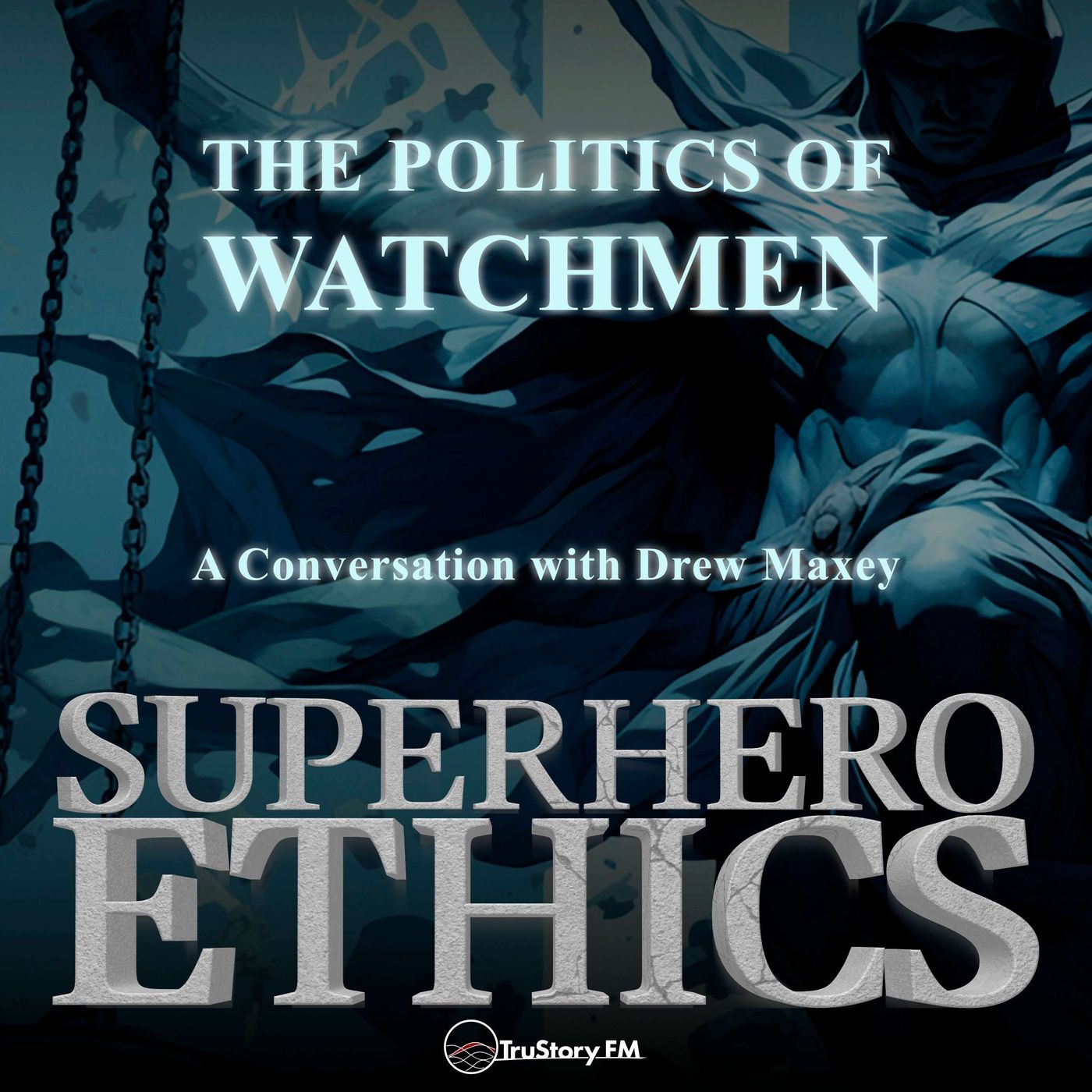
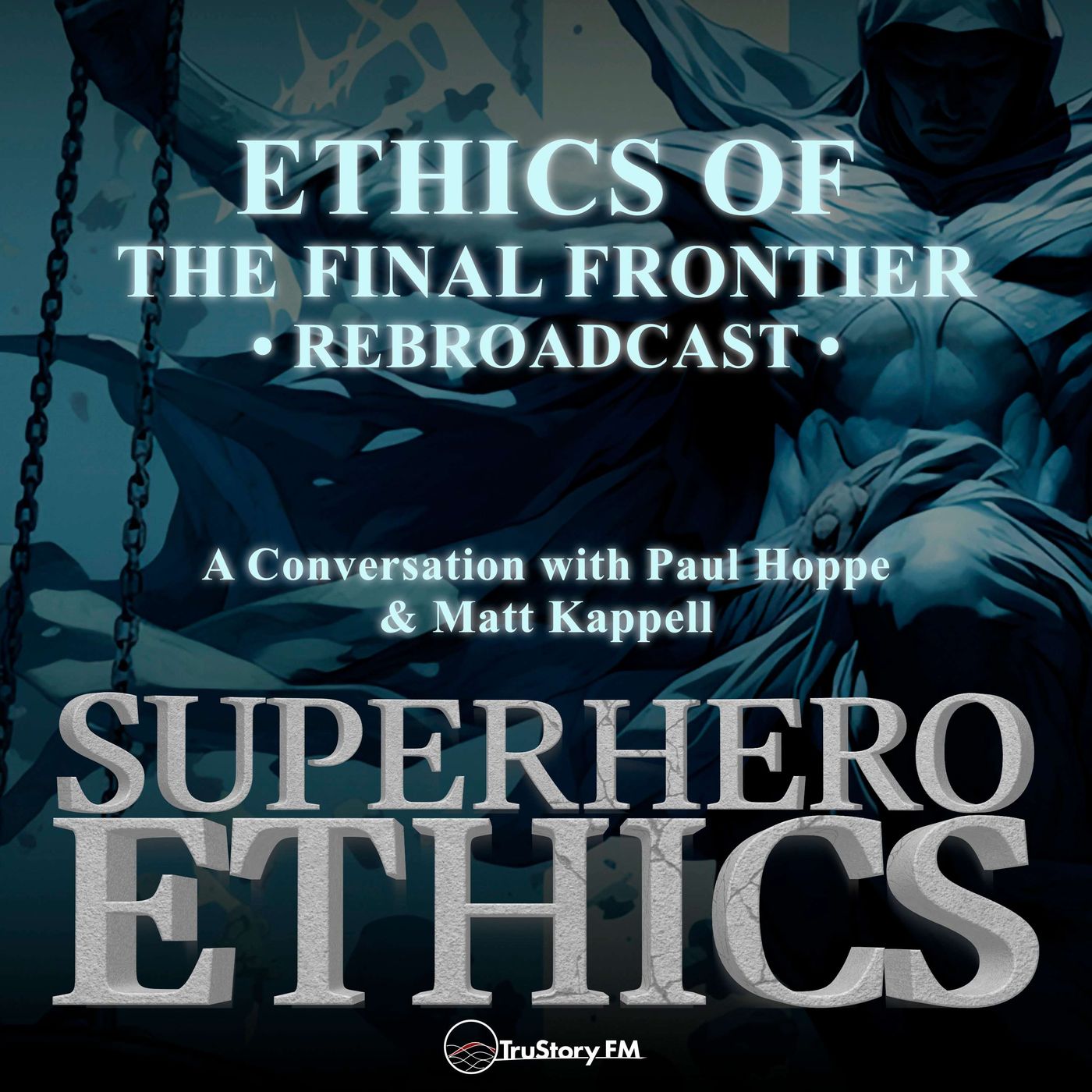
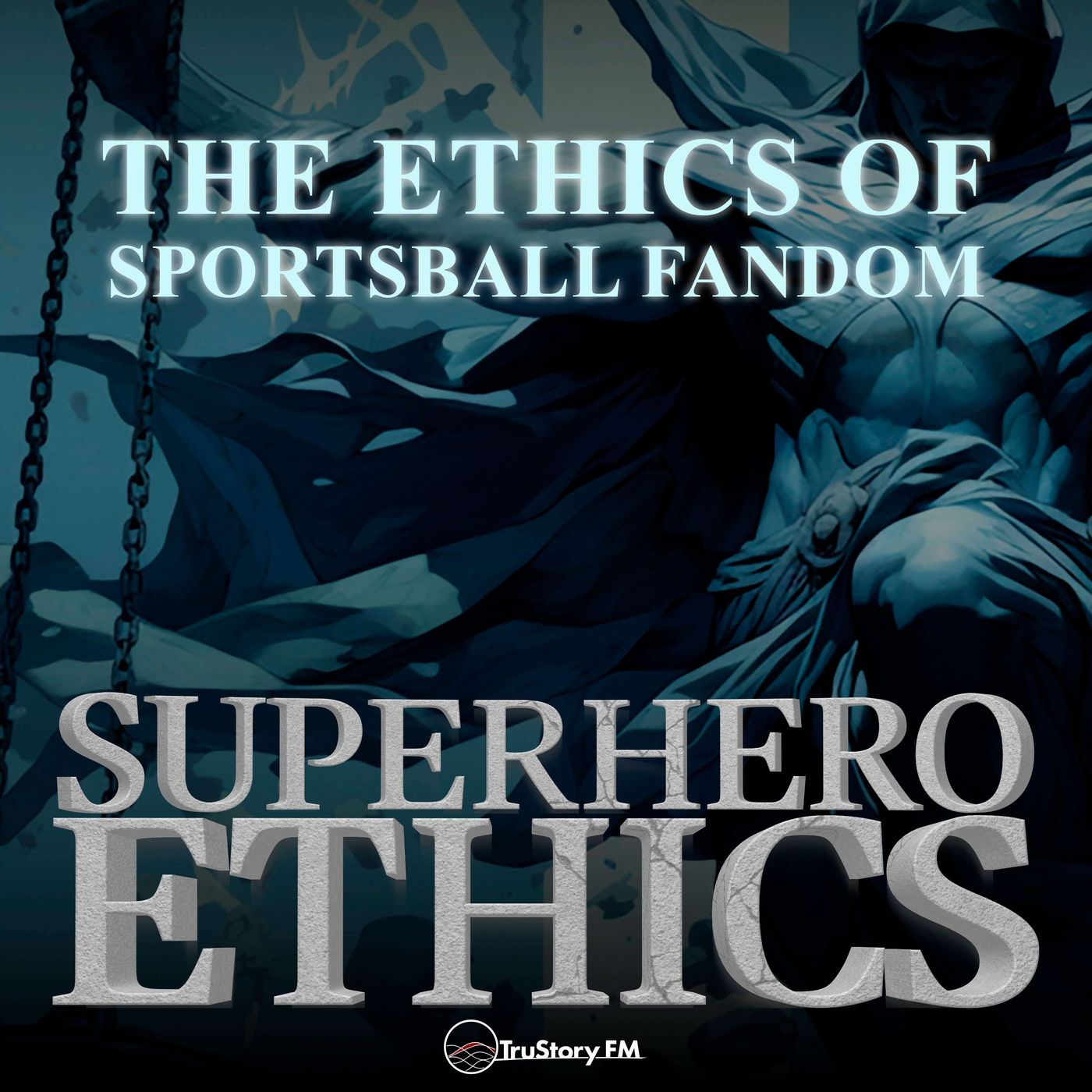
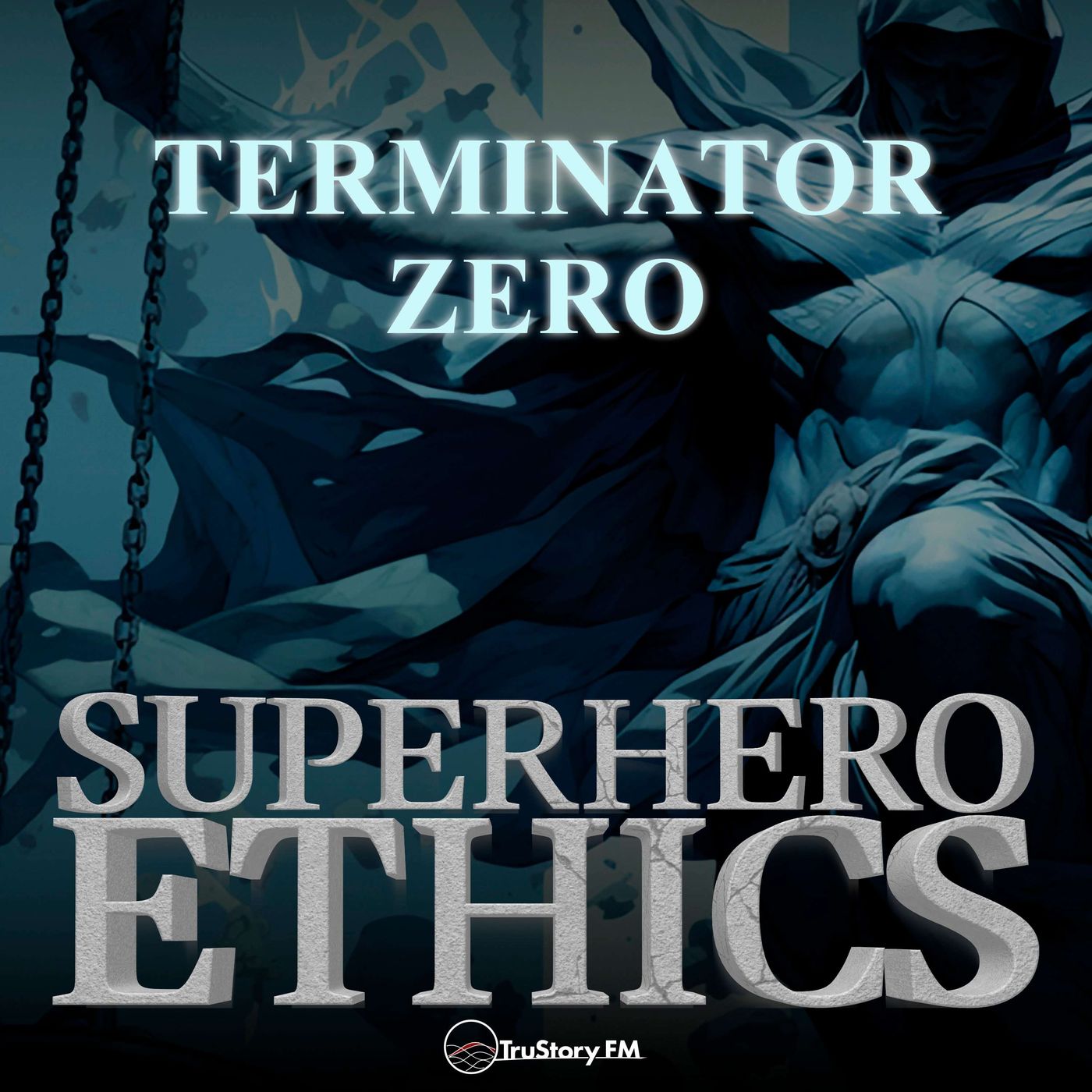
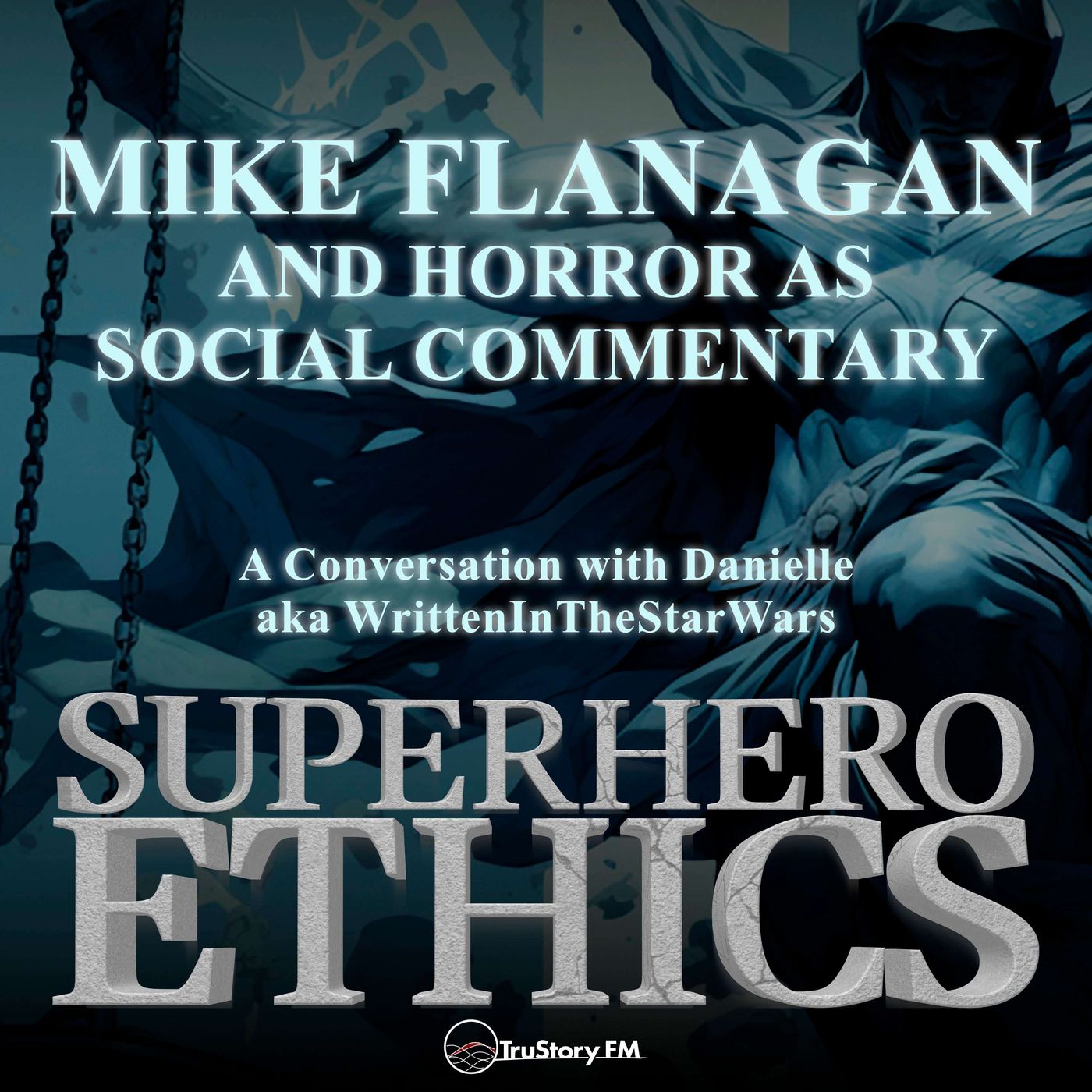
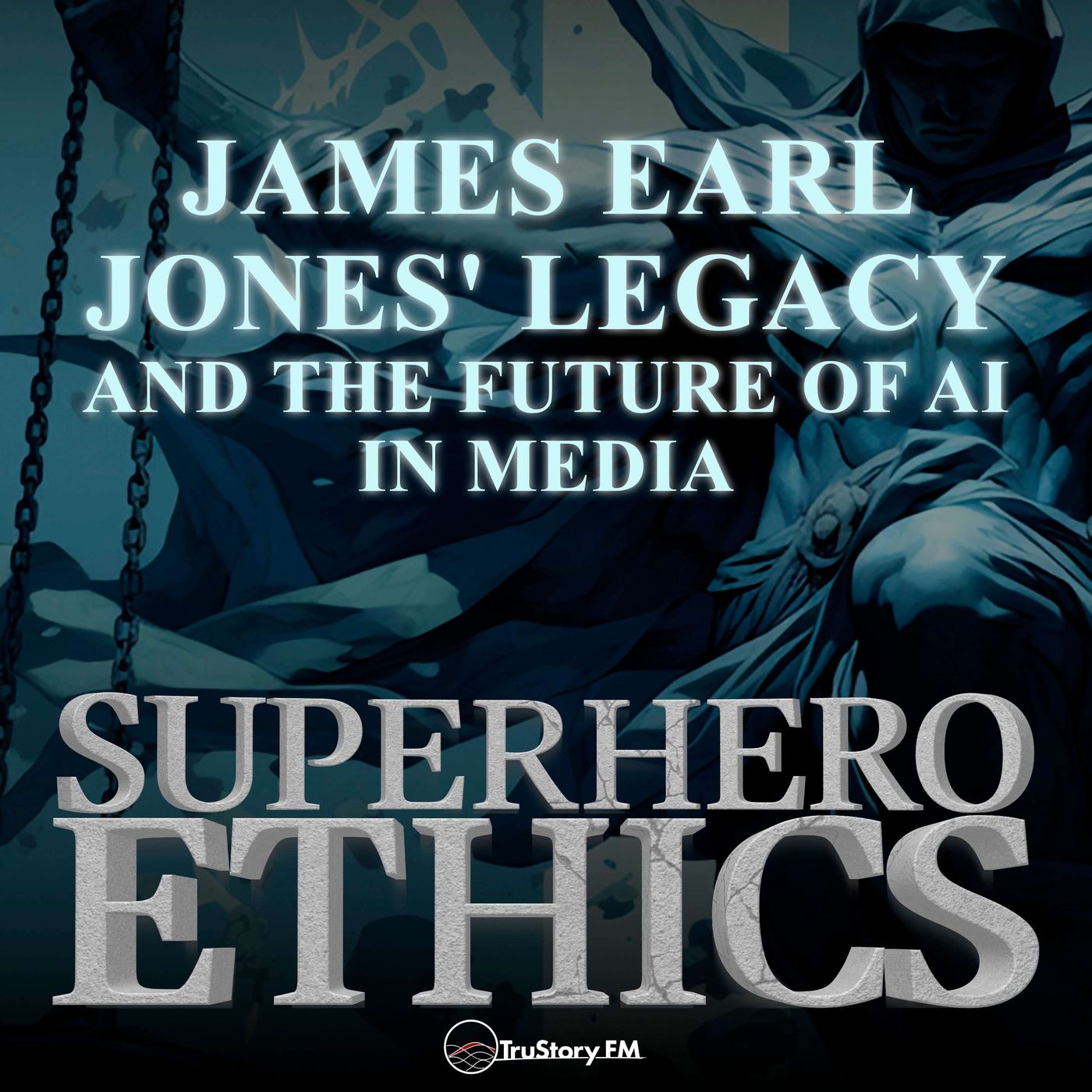
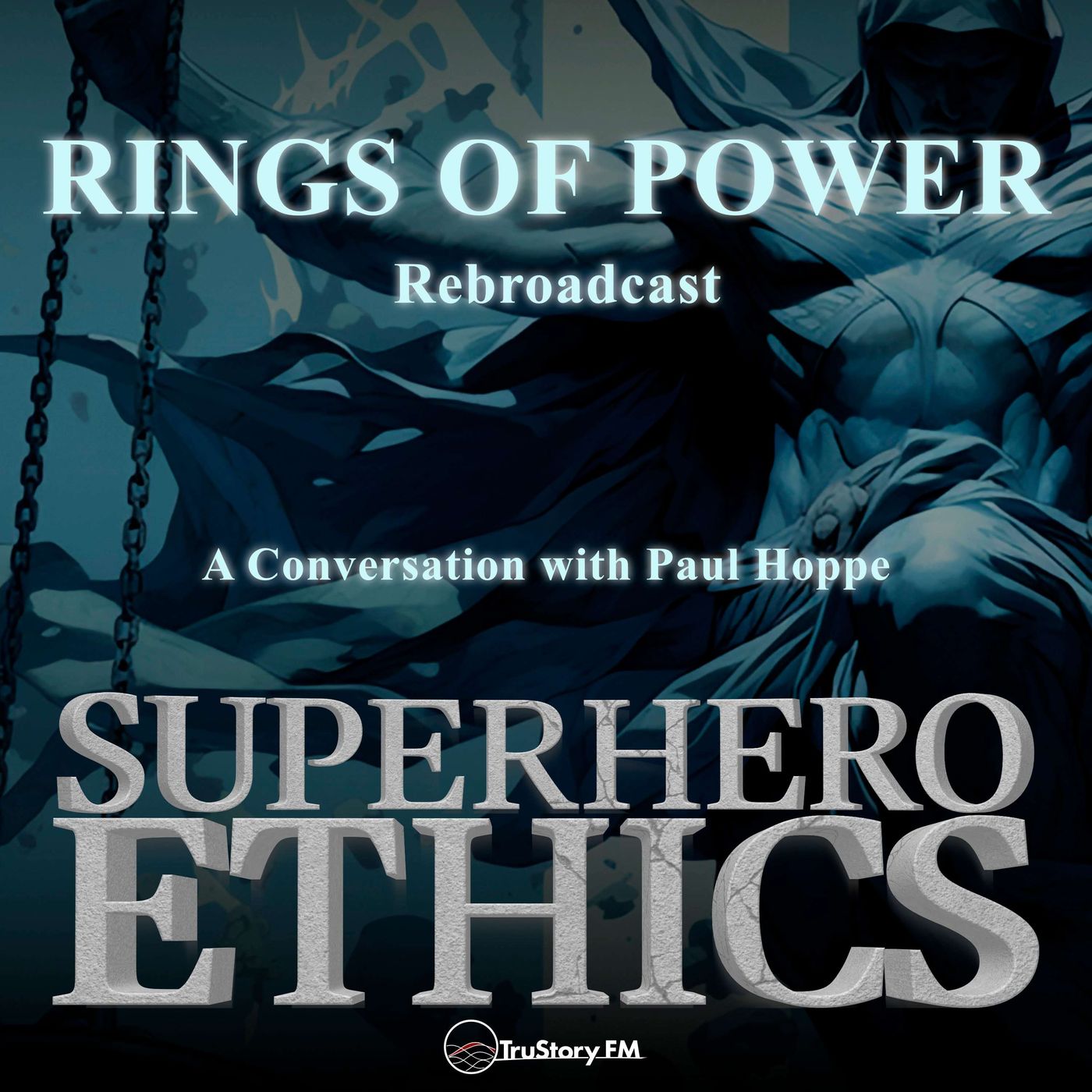
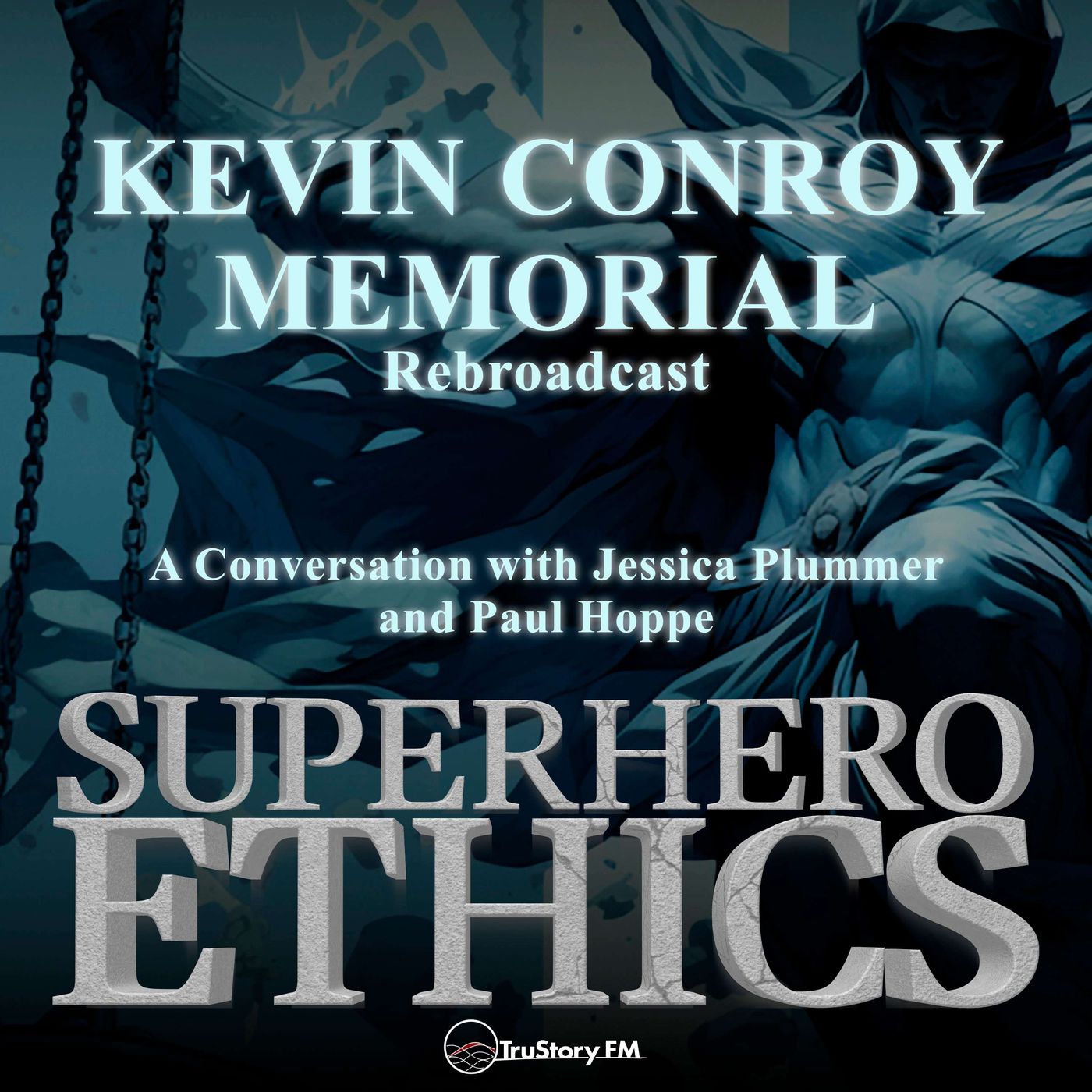
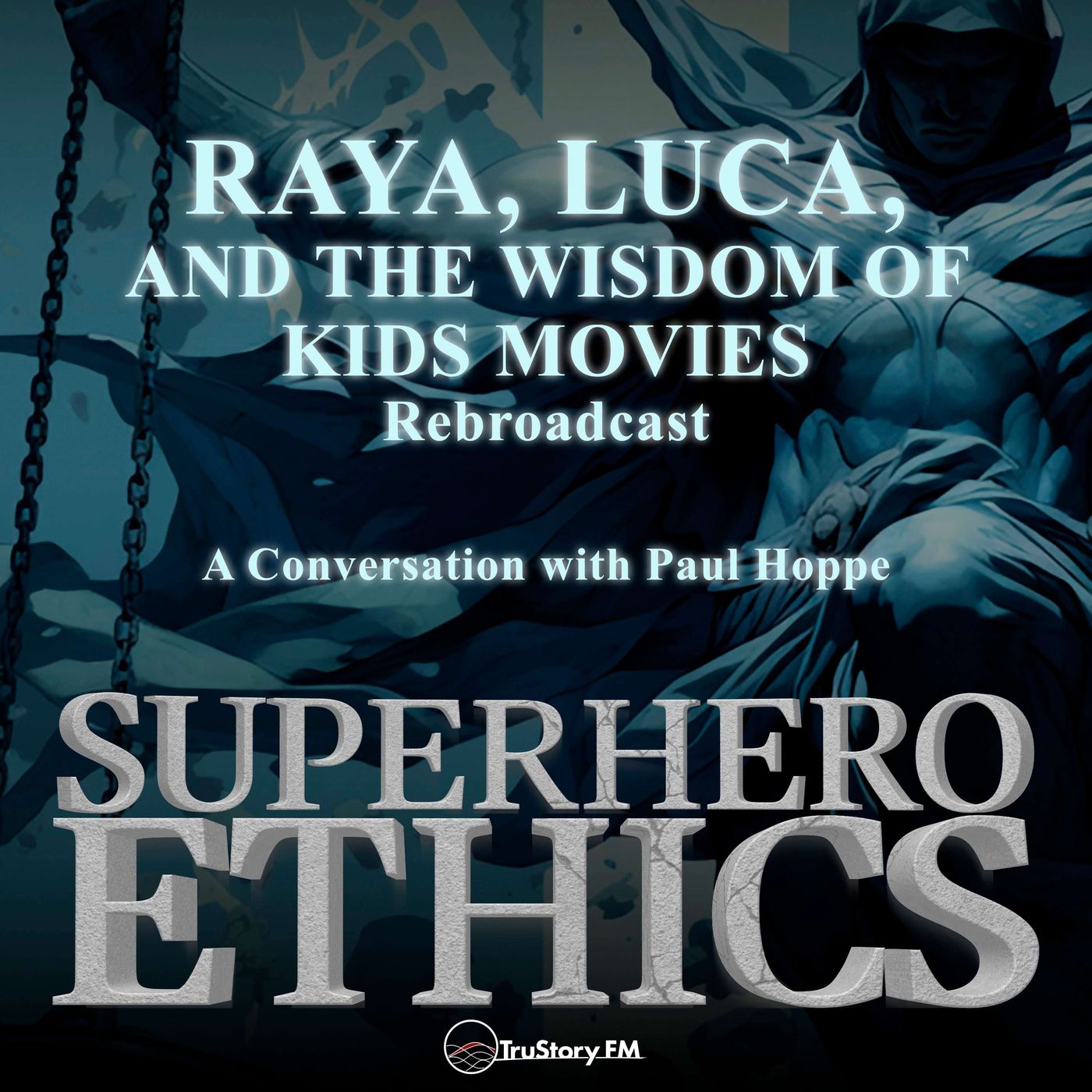
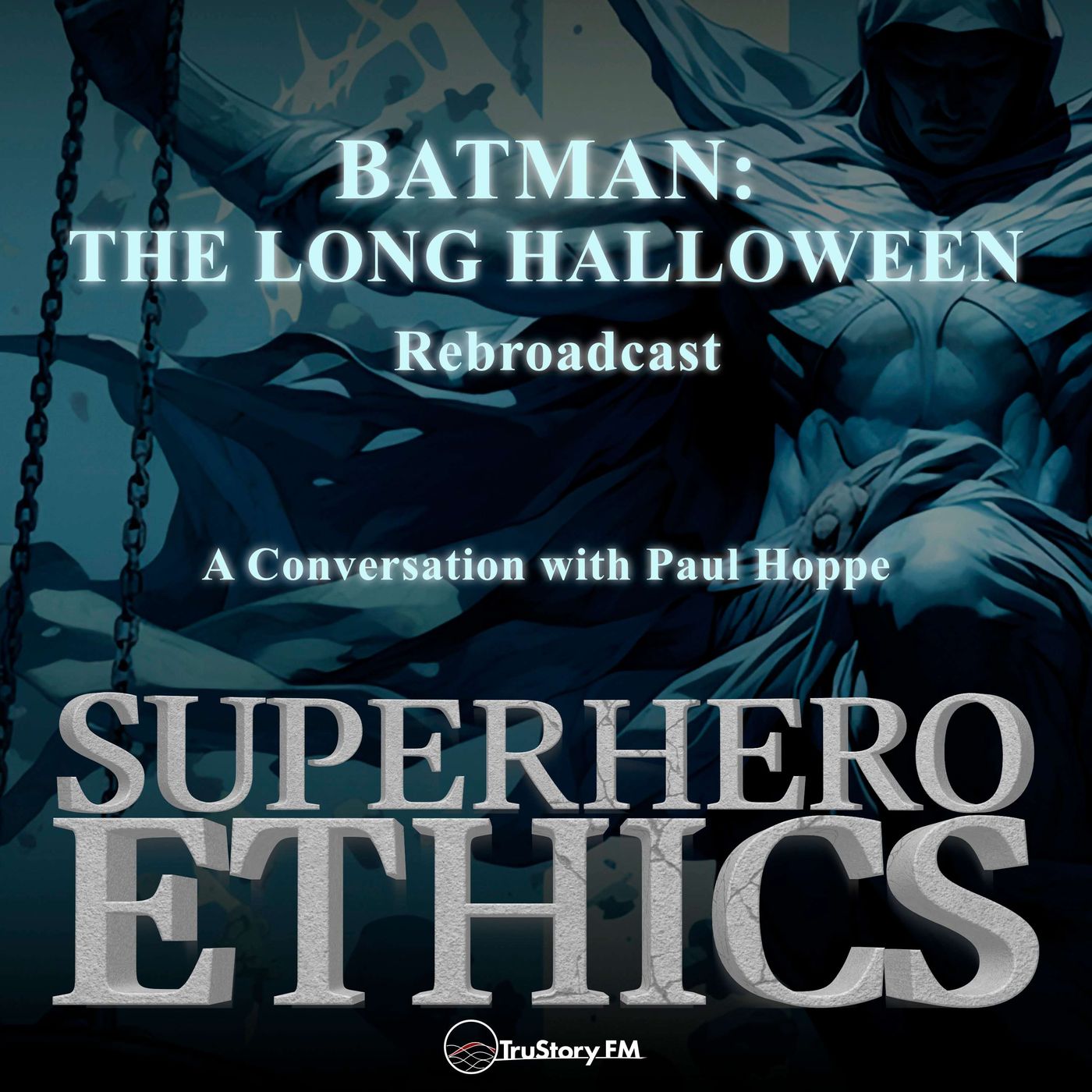
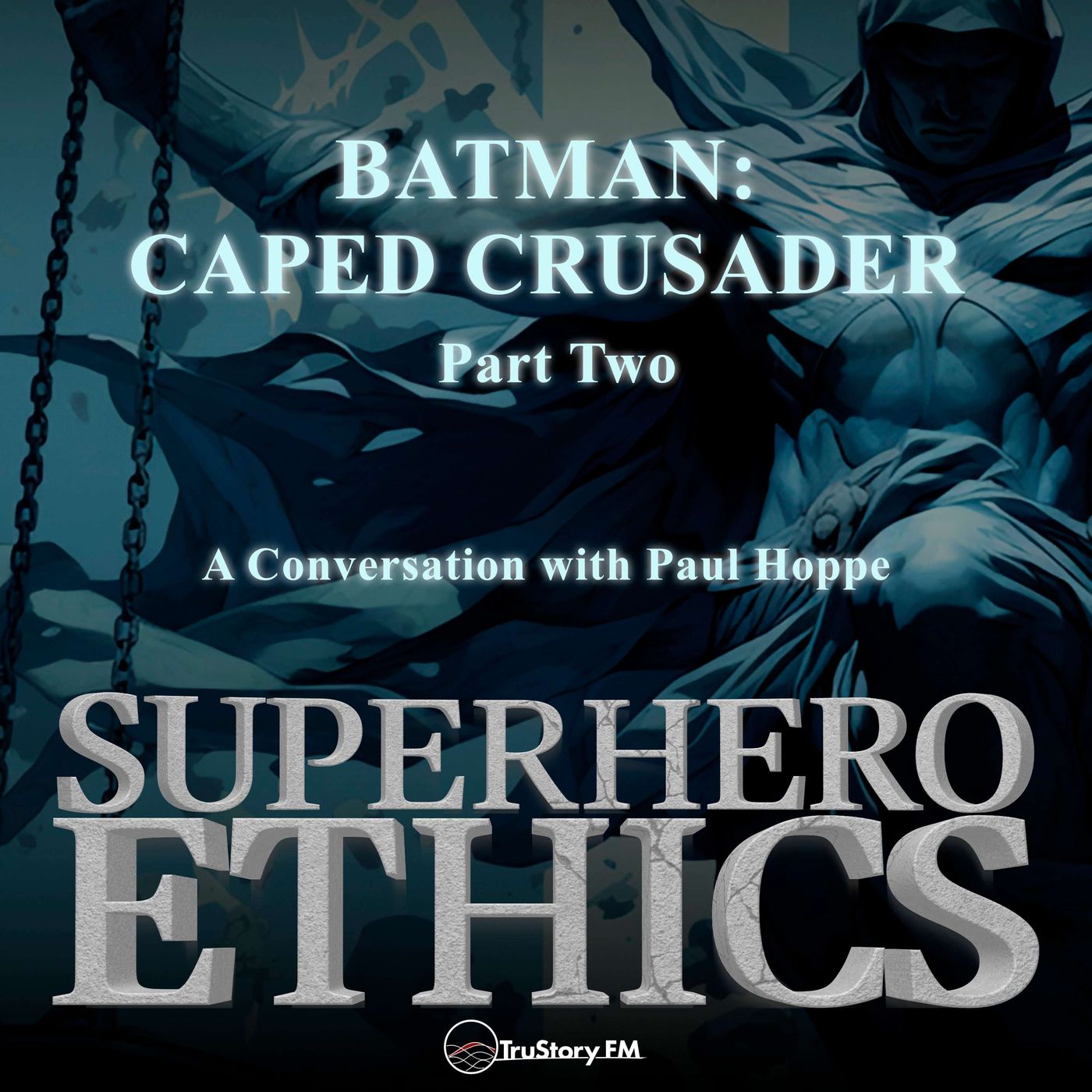
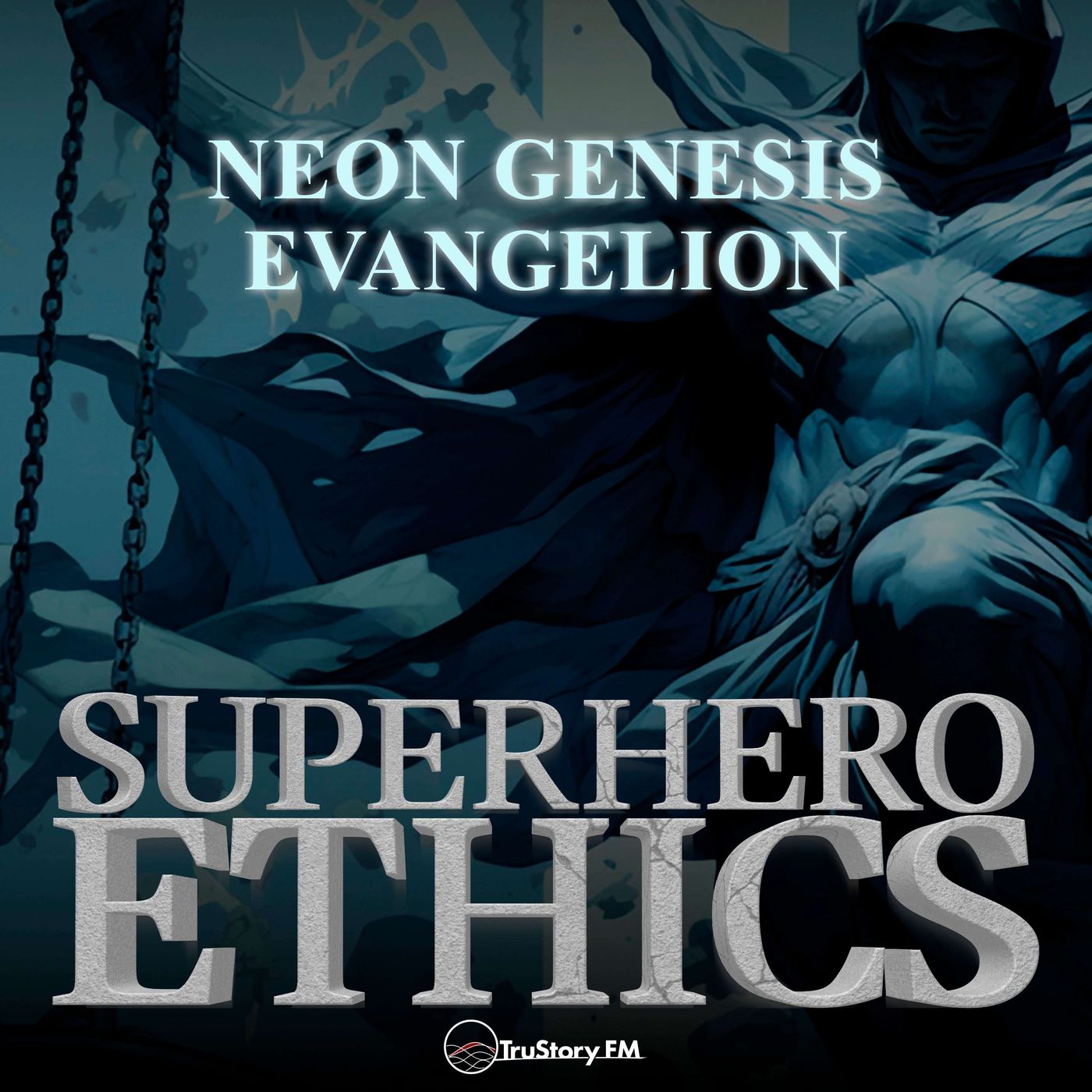
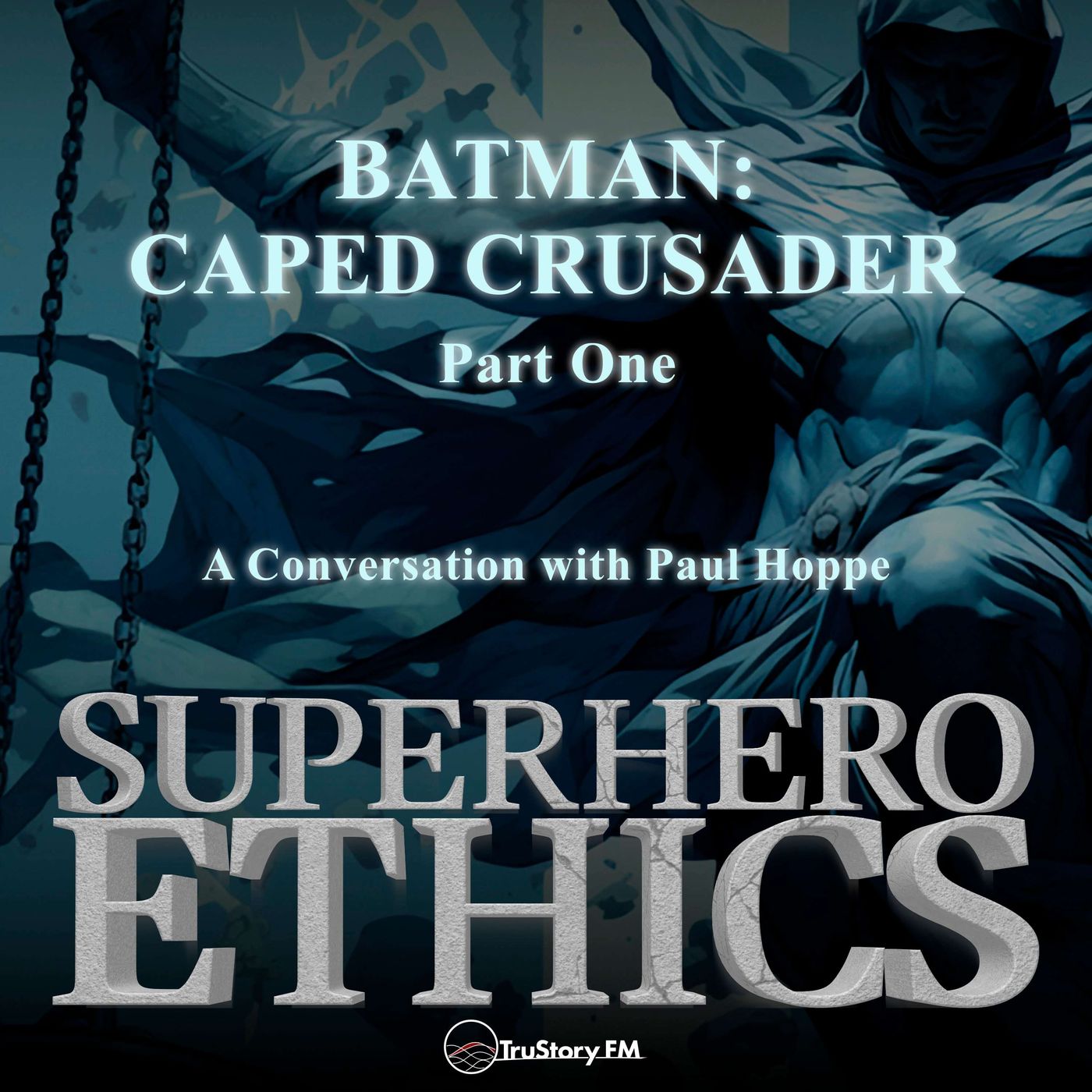
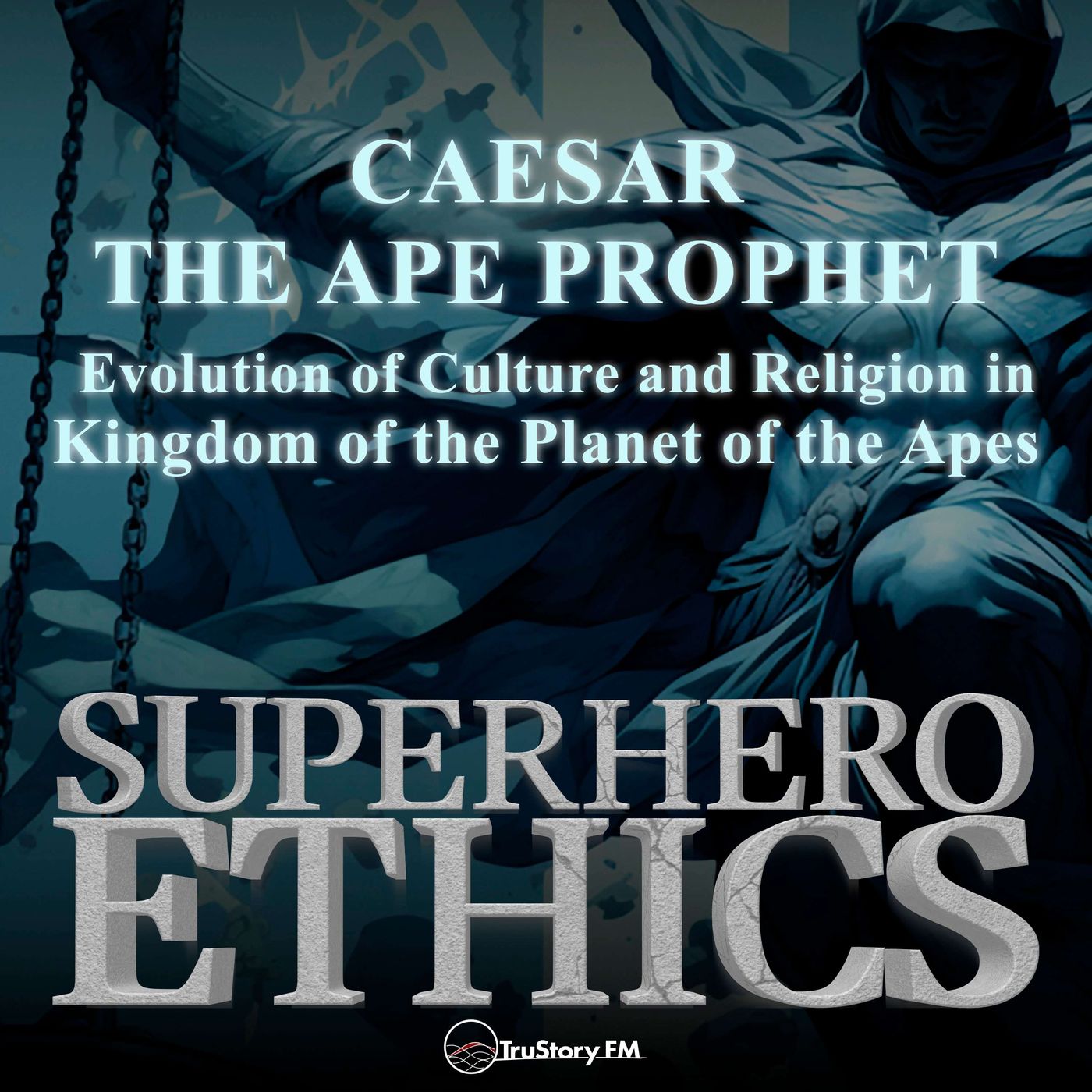
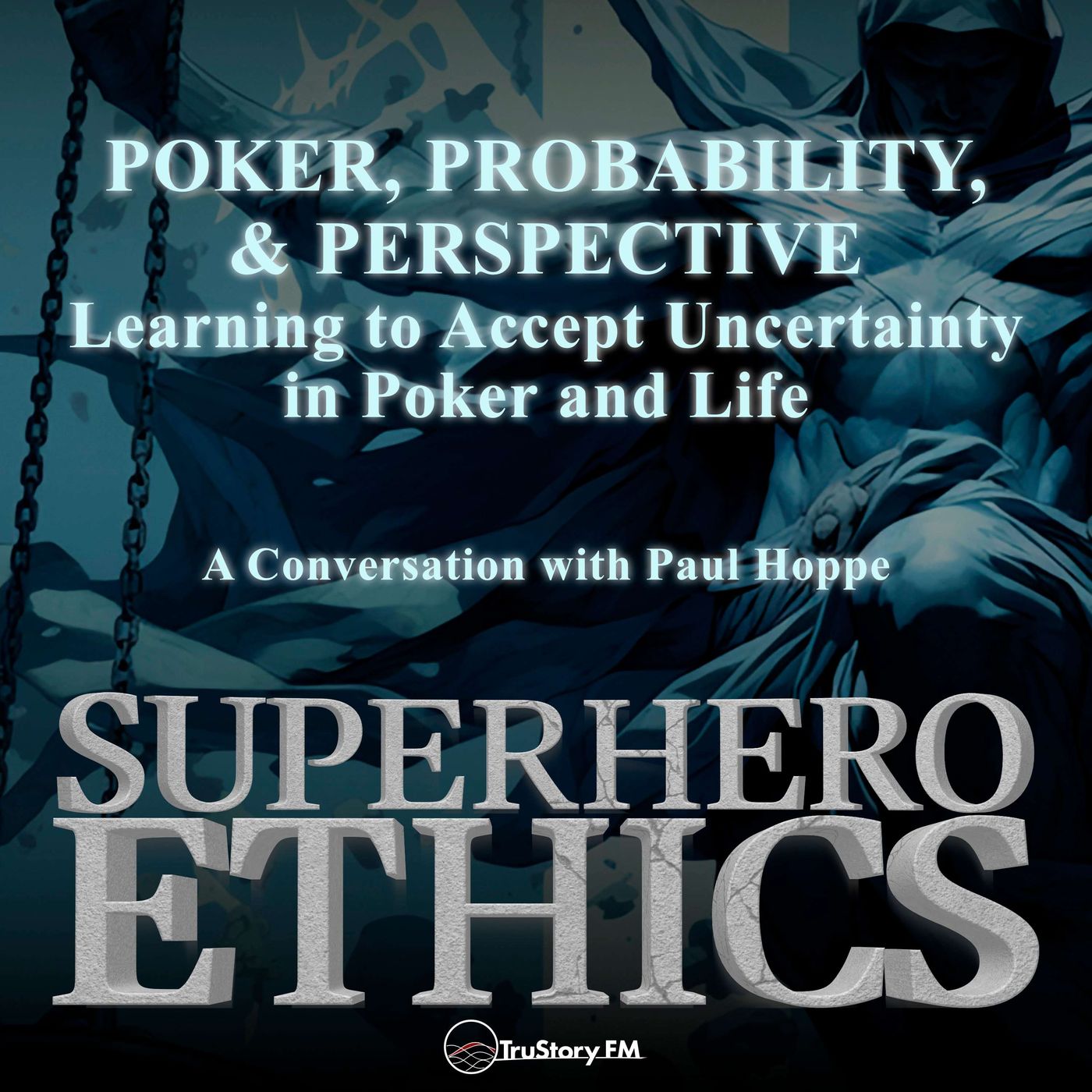
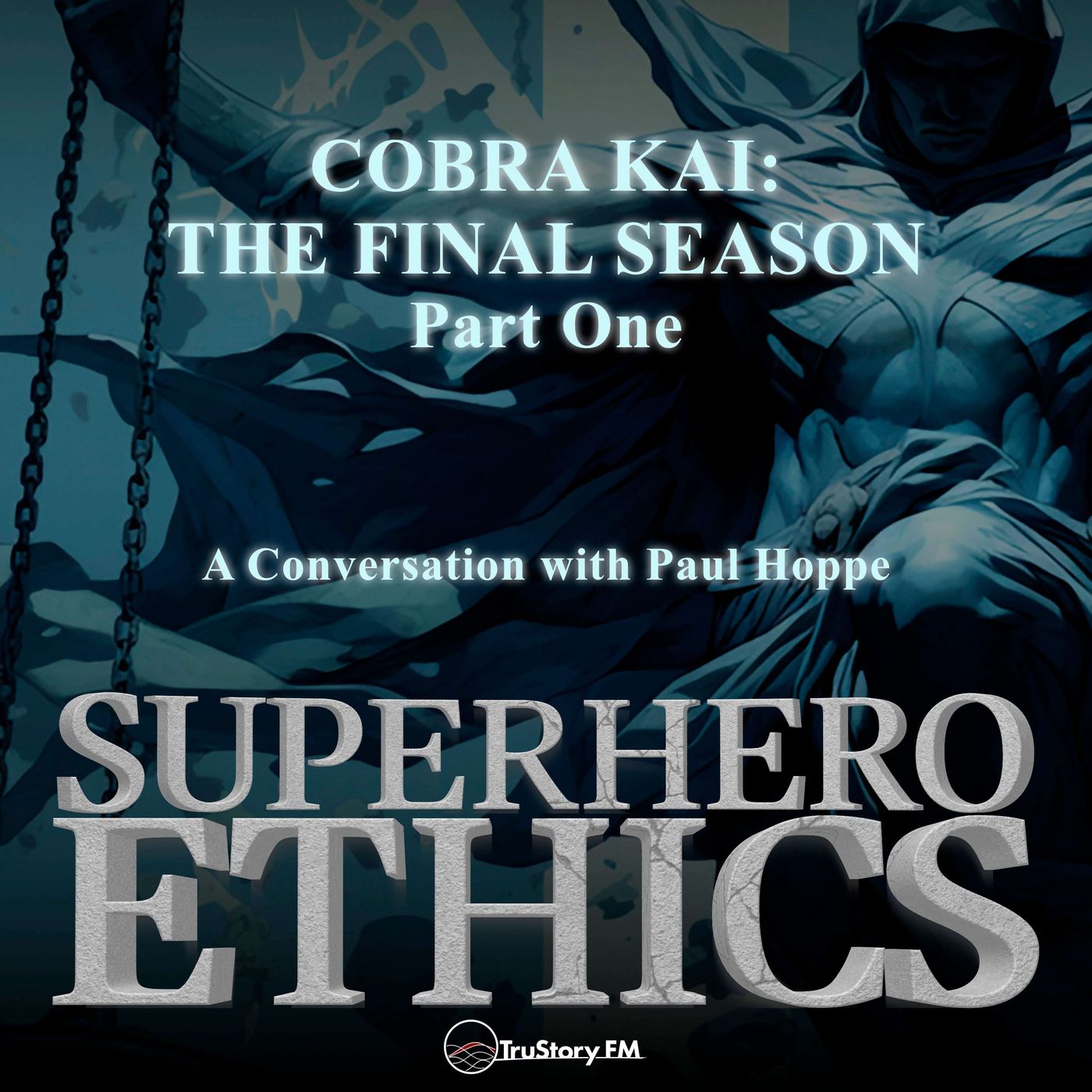
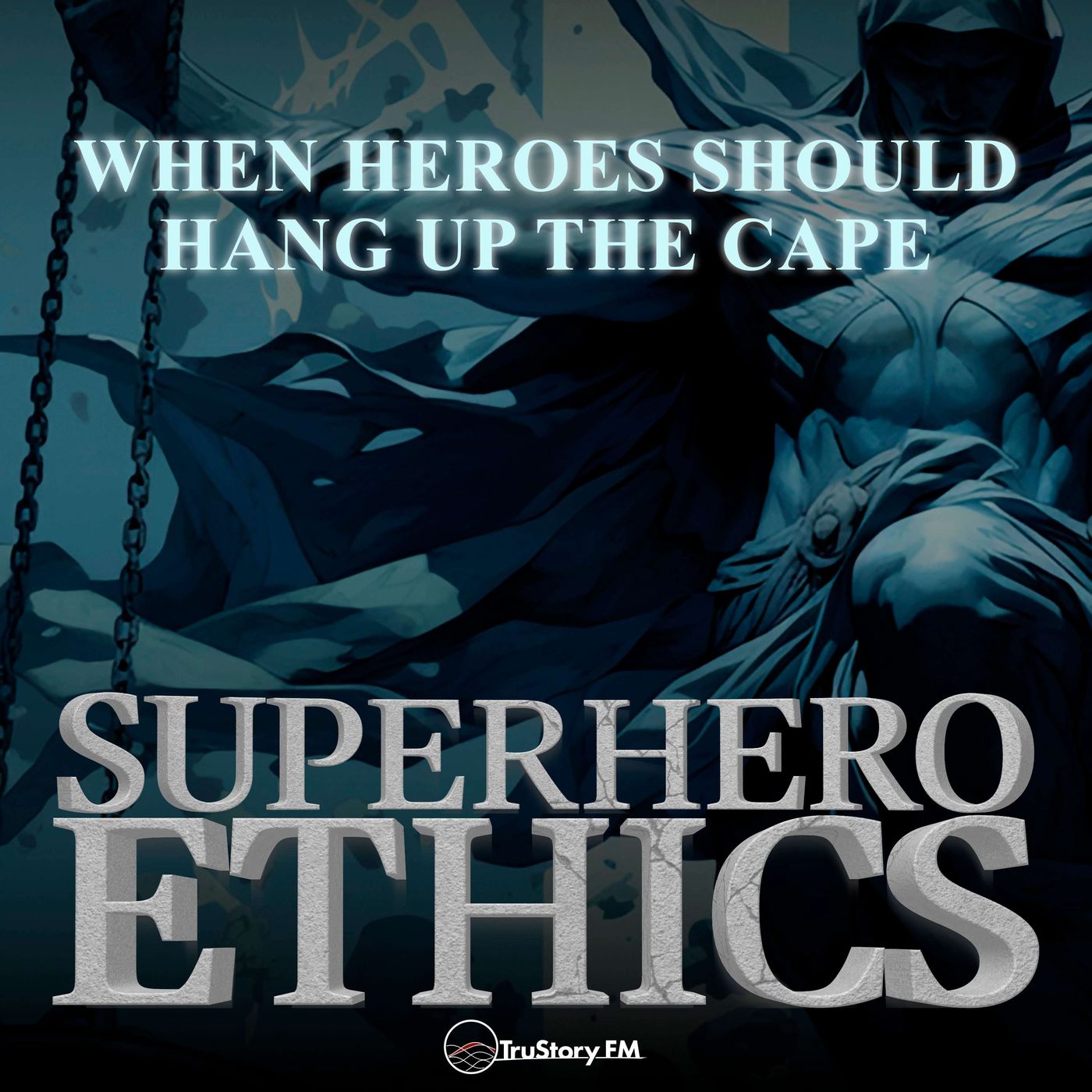
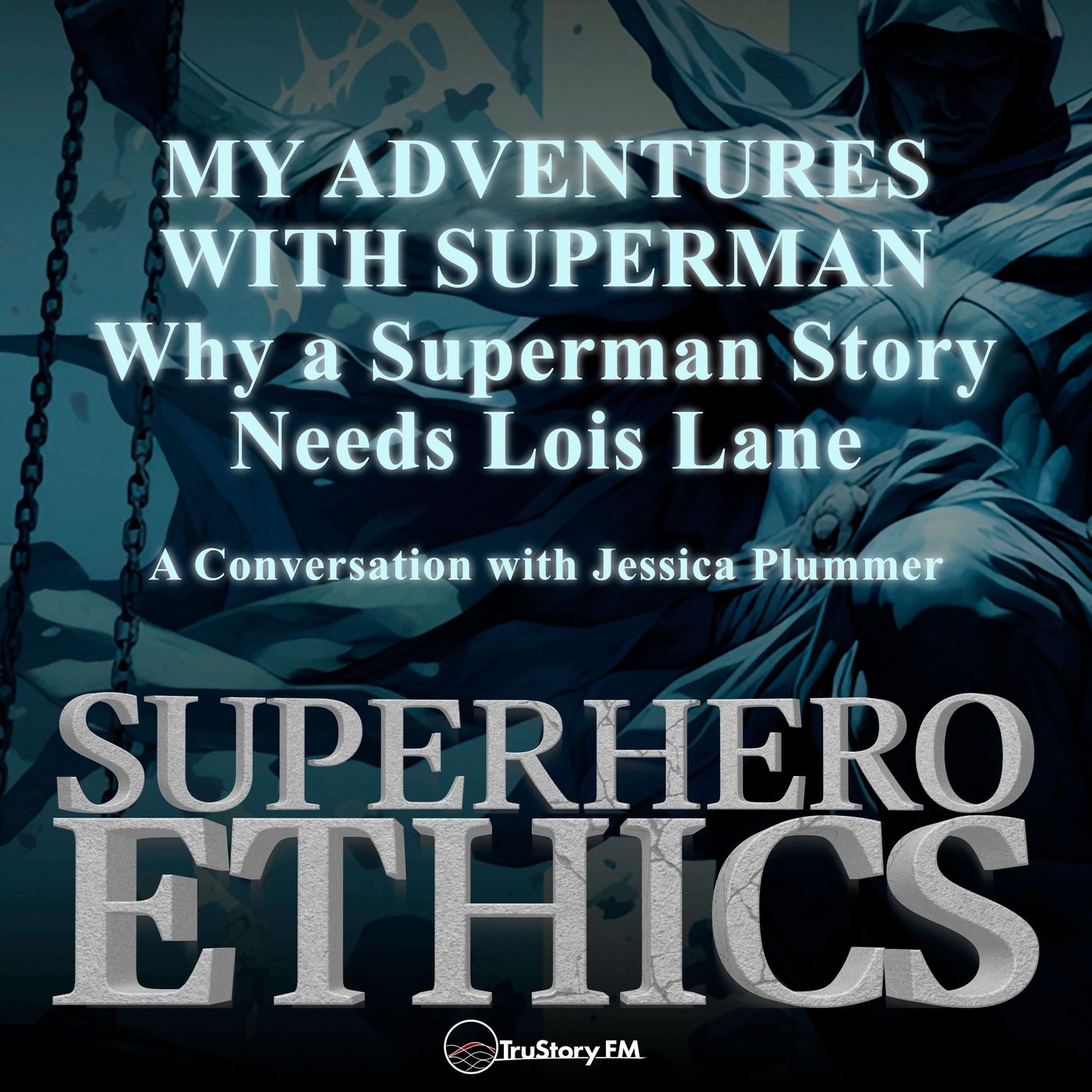
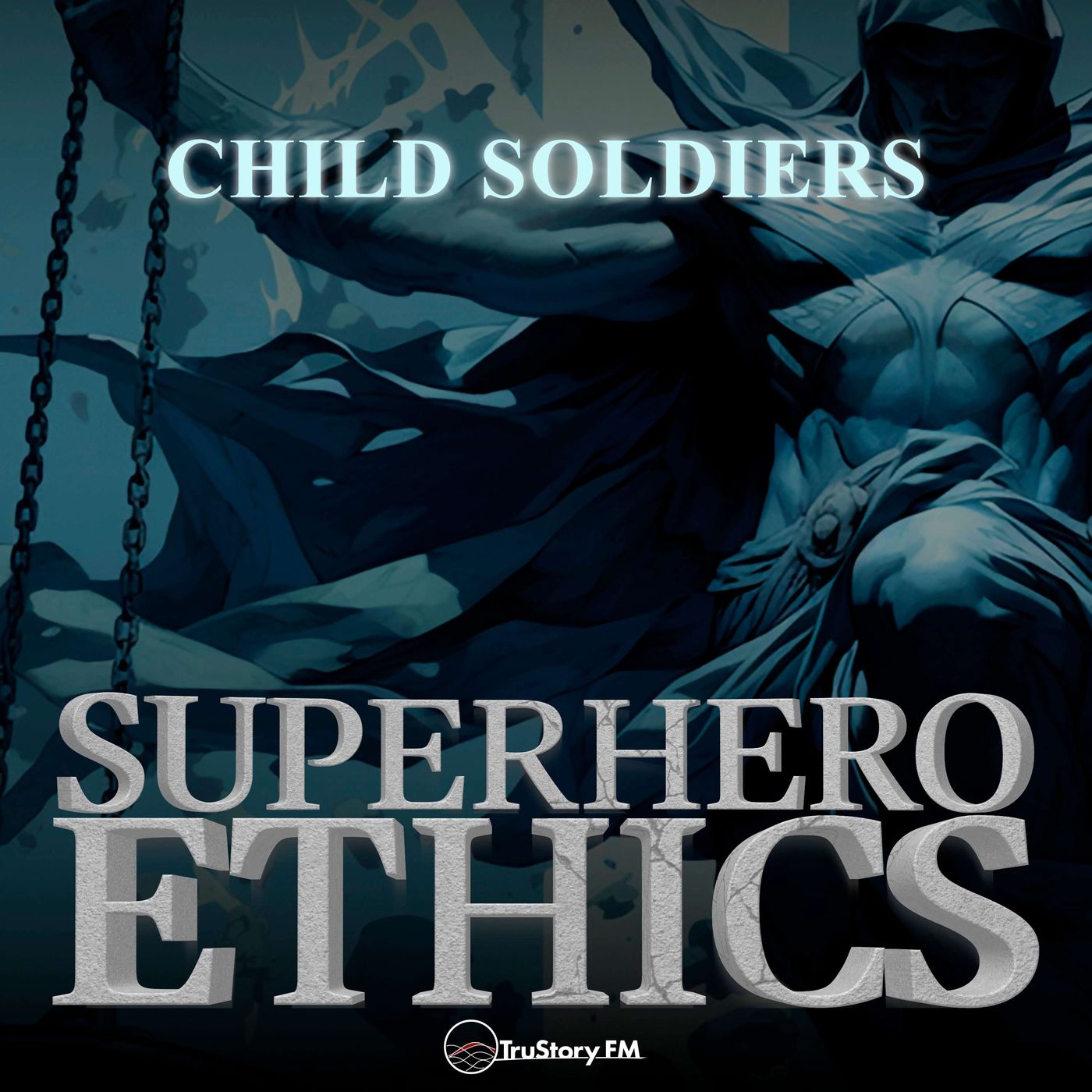
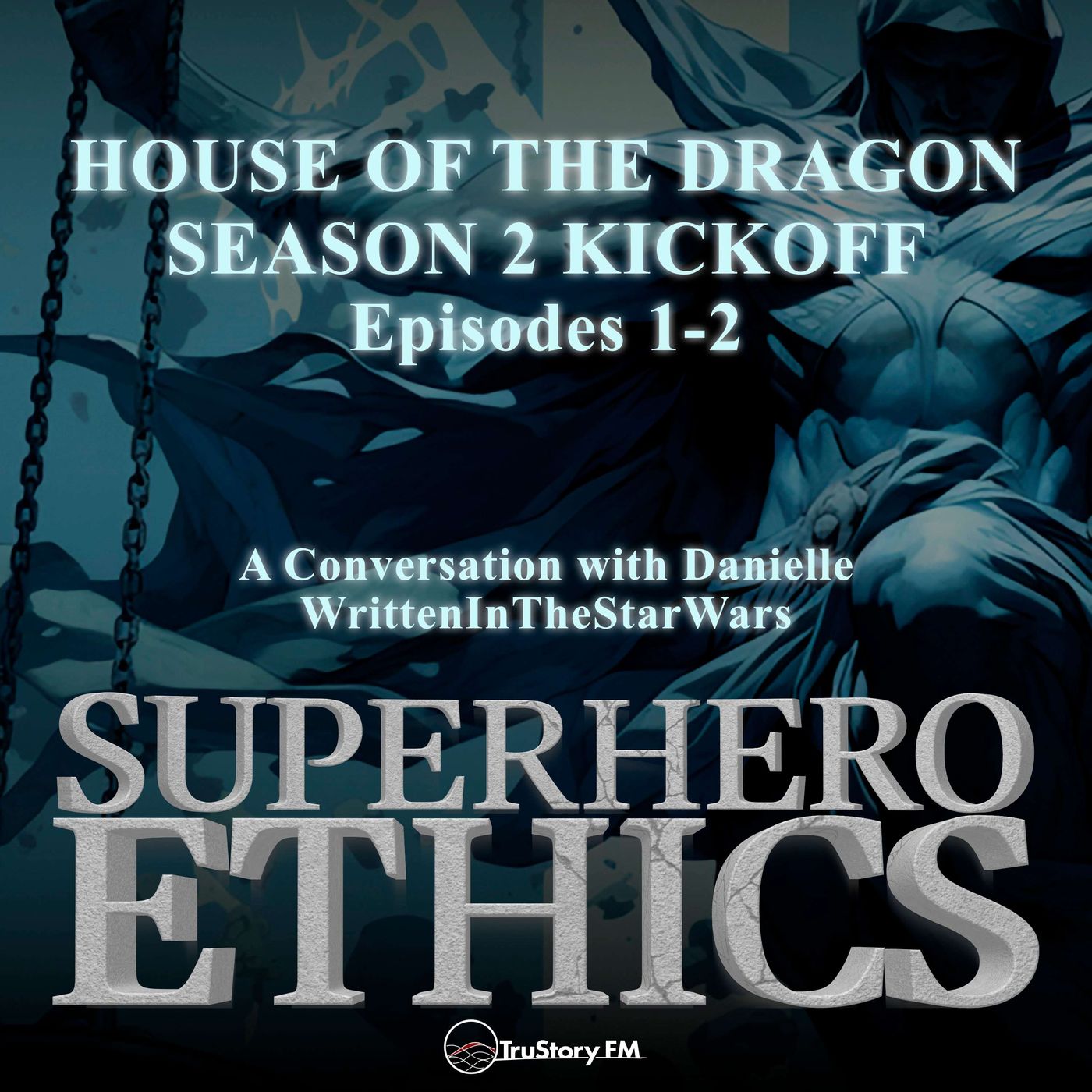


I thought this would be fertile ground for discussion. Then the first comment of the first episode I listened to (Cobra Kai s.3) consists of the hosts complaining about the race of the actors. Gave it another chance (WW84), didn't get any better. "Ethical" discussions are very thin, when they exist at all. Do not recommend.